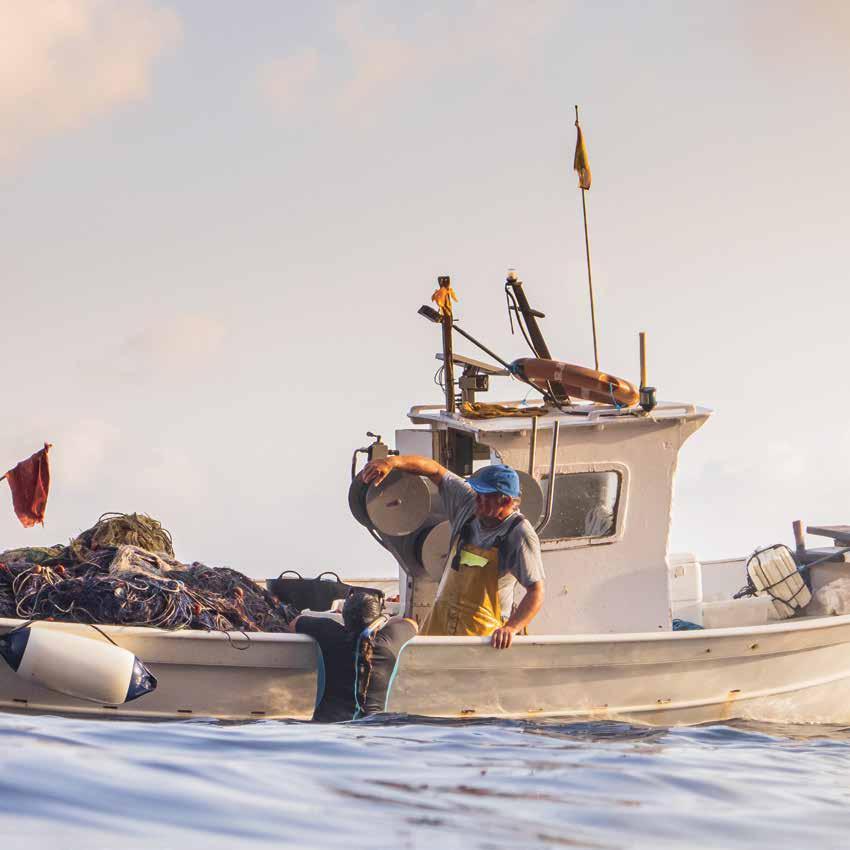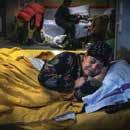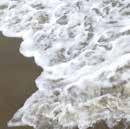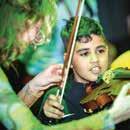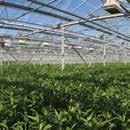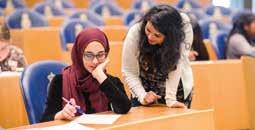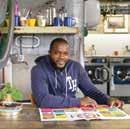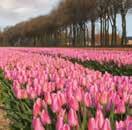











Page 35













Page 35
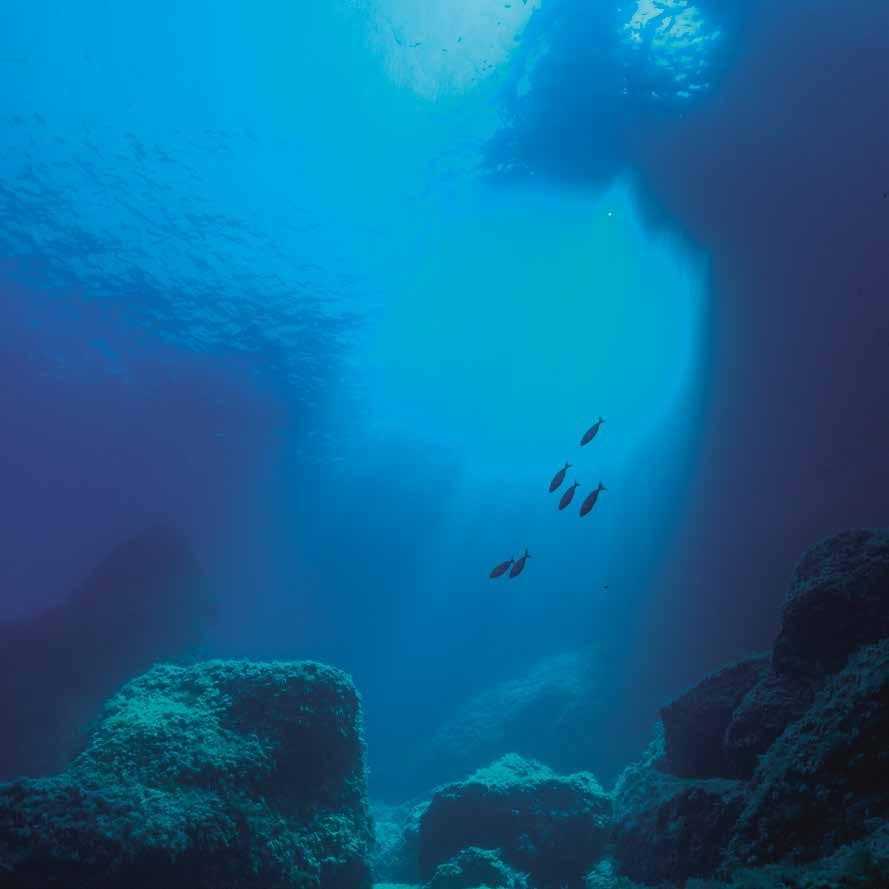
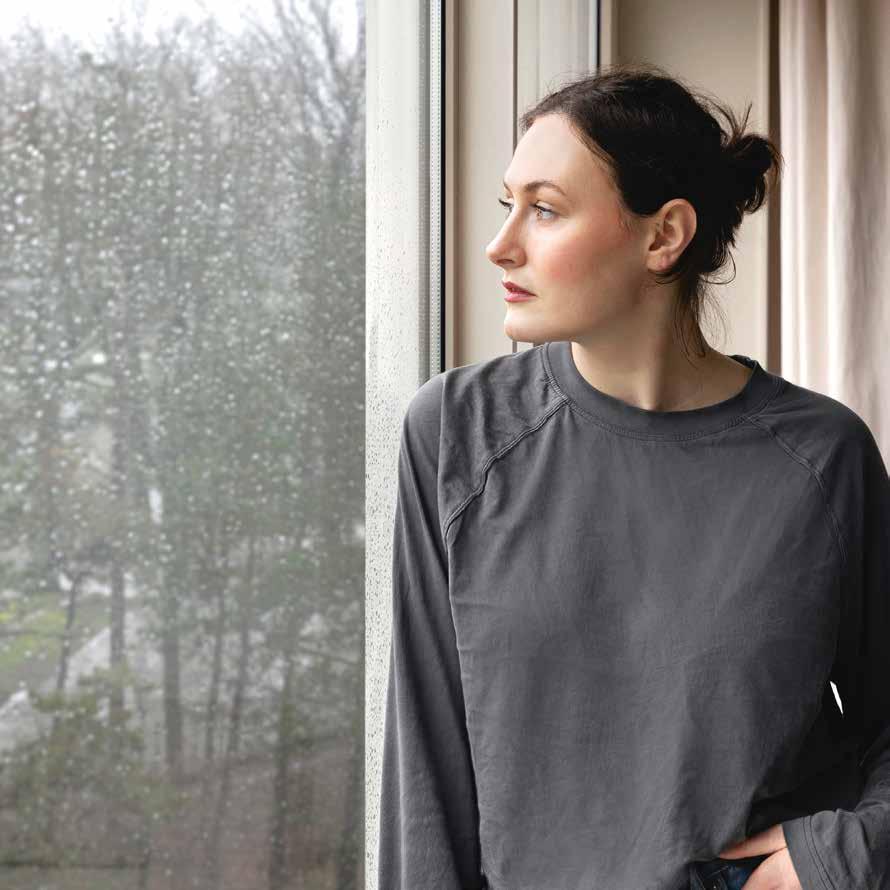
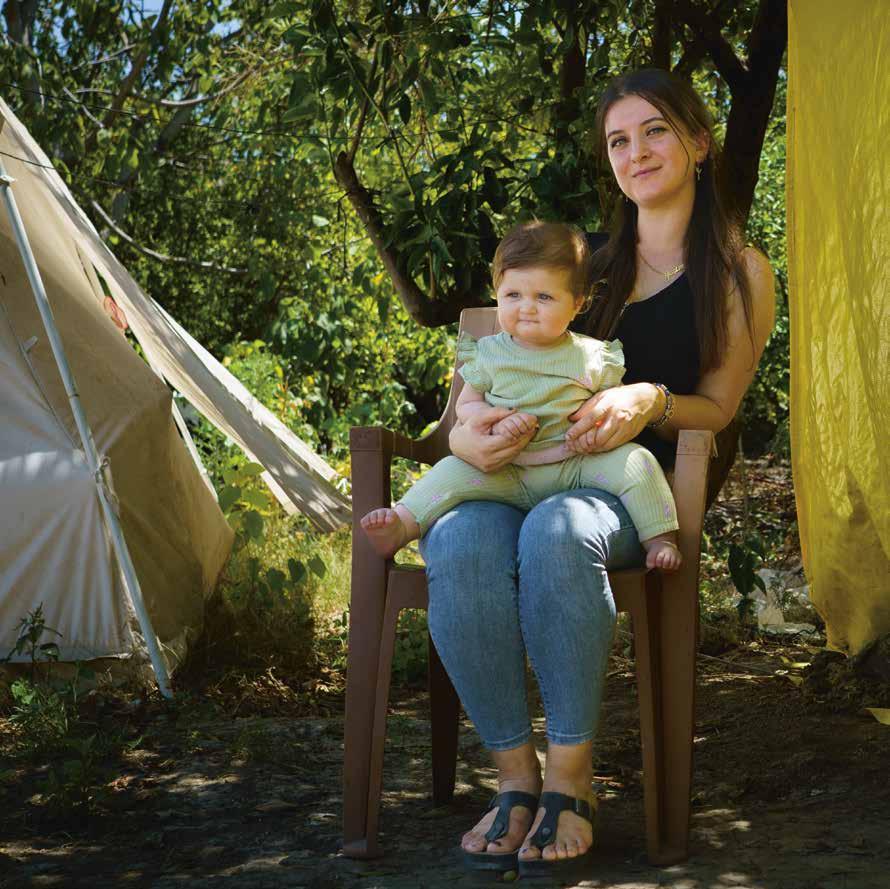
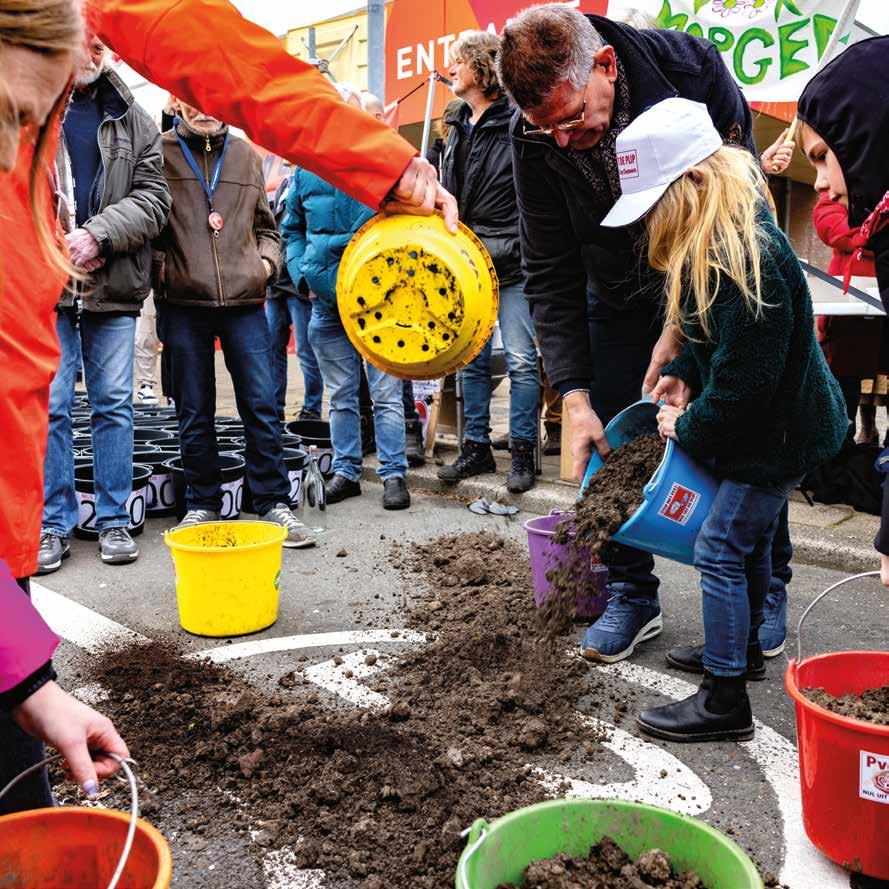 Yeşim (30) survived the devastating earthquakes in the south-east of Türkiye, but since then she and her family have been living in a tent. Page 49
Local residents dumping contaminated soil at the gates of the Chemours chemical complex in Dordrecht as a protest against PFAS. Page 31
Yeşim (30) survived the devastating earthquakes in the south-east of Türkiye, but since then she and her family have been living in a tent. Page 49
Local residents dumping contaminated soil at the gates of the Chemours chemical complex in Dordrecht as a protest against PFAS. Page 31
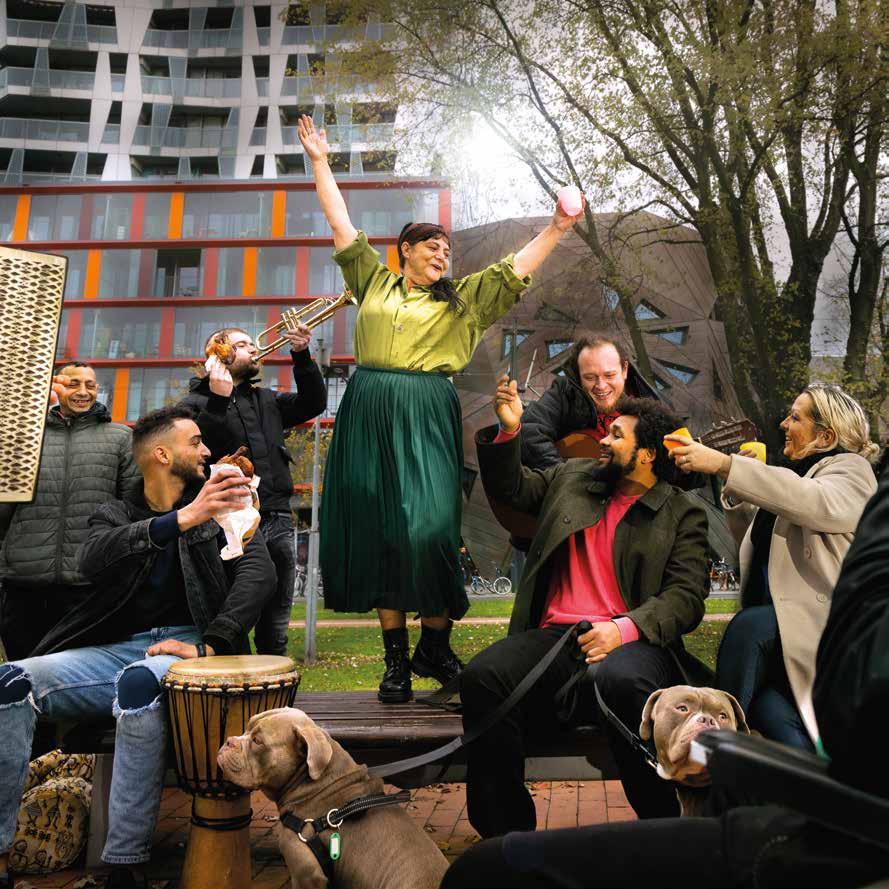
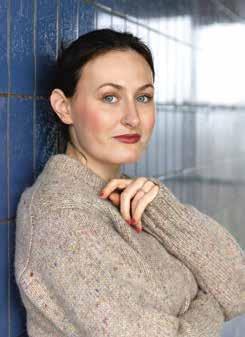



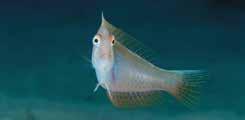
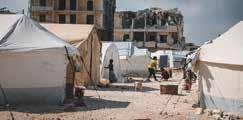
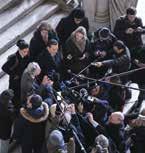
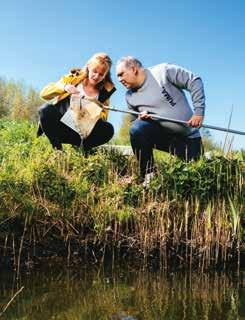
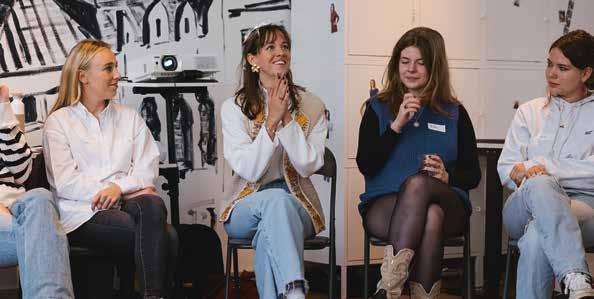
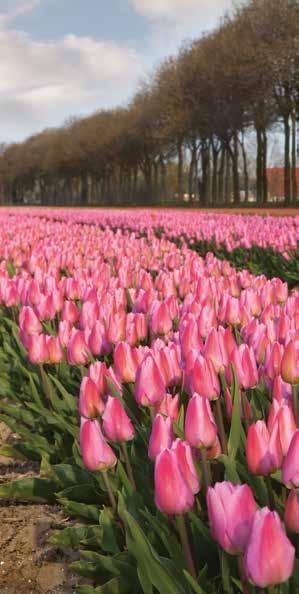
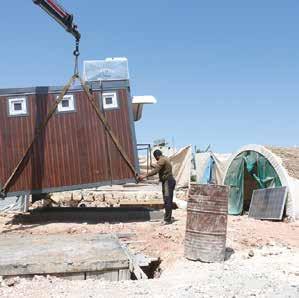
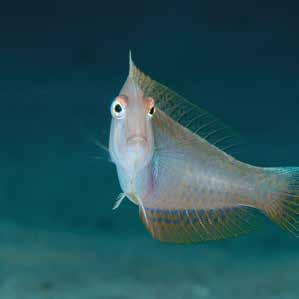
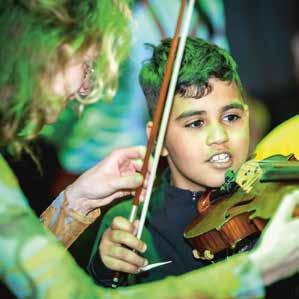
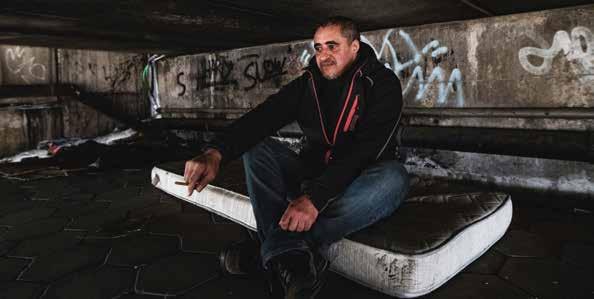
The basis of our activities
Adessium Foundation aspires to help build a society in which people live in harmony with each other and their environment. A society where actions are taken with the public interest in mind, where we treat nature responsibly and take care of each other. We support initiatives and organizations in the Netherlands and Europe that are committed to an open and just society, healthy ecosystems and equal opportunities for everyone. We do this by helping our grantees to work on positive, lasting change in our society.
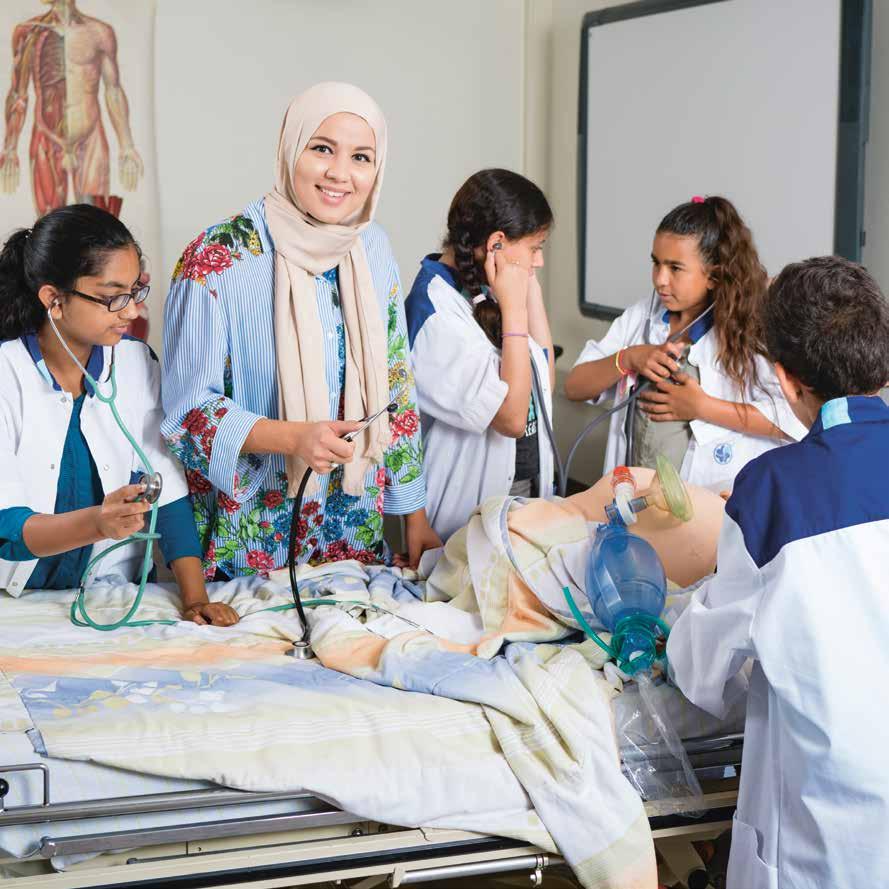
“We're navigating through a challenging period”
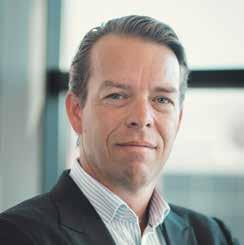
In a world that is constantly changing due to technological progress, geopolitical tensions and growing demands for sustainability, we try to carefully maintain our course as a foundation. This Annual Report provides insight into society's problem-solving capacity to navigate through these turbulent times.
In every challenge that society faces, the analysis provided by journalists is of great importance. To understand the complex reality of the current world order, I frequently tune in to the Dutch ‘Boekestijn & De Wijk’ podcast for its valuable analyses and discussions. Dialogues and insights such as these underscore the significance of an open and informed society. Journalism inspires us to think critically and reflect on our actions.
At Adessium Foundation we believe that fostering a common understanding of reality and combating disinformation are of utmost importance. Our efforts to pierce the filter bubbles created by algorithms and cultivate a healthy information ecosystem are more urgently needed than ever. This is crucial to reinforce social cohesion and promote critical thinking and media literacy in our society.
The protection of our natural environment also remains a priority. A healthy living environment is indispensable to ensure a resilient society that is able to tackle complex challenges effectively. We support initiatives that not only create more space for nature but also contribute to a sustainable future for everyone.
In this Annual Report we reflect on the actions we have taken and look ahead to the paths we intend to follow. ‘Bring joy to the world’, a message on our last Christmas card, reminds us of the essence of what we aim to do: spread love and joy, not just during the holiday period but all year round. encourage you to consider the constructive role that we can play together in order to get through this challenging period. Cooperation and understanding are vitally important to laying the foundation for a resilient, righteous and sustainable future.
We look to the future with optimism and determination.
Rogier van Vliet Chairman Maryam Lyousoufi, a former pupil at IMC Weekendschool, gives a guest class on medicine. Page 45Anthropologist Jitske Kramer astutely commented that we are living in a ‘betwixt-and-between time’. A time when major changes are either imminent or much needed. And that gives rise to turbulence and discontent. For instance, technological breakthroughs in the field of artificial intelligence bring our society in unchartered territory. The increasing pressures on our living standards and the poor state of our living environment place a strain on the cohesion within our society as well. Fortunately, we are witnessing the significant positive contribution made by numerous civil society organizations. In this Annual Report we show how this movement originating from within our society represents an essential force that can guide us through this betwixt-and-between time.
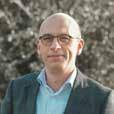 Managing director
Managing director
 Director of programs
Director of programs
From the devastating earthquakes in Türkiye and Syria to the war flaring up between Israel and Hamas and the continued fighting in Ukraine: 2023 was, to put it mildly, a turbulent year. In times of need, as a philanthropic foundation our aim is to make a swift and substantial contribution to relieving human suffering. We report on this on page 49. However, this Annual Report is also about changes that will only be seen and felt in the longer term. And, consequently, about how important it is that as a foundation we apply a long-term approach and hold course as we work on complex social issues, even when the change we want to see doesn’t immediately manifests itself.
The importance of a long-term approach
In this Annual Report, three stories illustrate the importance of this long-term approach to social change. Stories about major social issues involving pollution
or homelessness, told from a personal perspective. These stories bridge the gap between the often intricate and abstract advocacy work carried out by our partner organizations in The Hague and Brussels and the tangible positive effects it has on the individuals featured in the stories.
Combating invisible pollution: PFAS in the Netherlands
A perfect example of how some changes require a long-term approach can be seen in the developments relating to the harmful chemical substances PFAS. With support from Adessium, the platform for investigative journalism Follow The Money was already reporting in 2015 about the looming environmental disaster due to years of harmful chemical emissions from the production of Teflon by chemical company Dupont - now Chemours - in Dordrecht. It turned out that the company had failed to reveal information it had about the scale of the pollution and the risks to public health. In the decade since those initial publications, widespread opposition to the use of PFAS has emerged. Chemours has been held liable for the damage and a broad European ban on the use of PFAS now seems within reach. In this Annual Report we present the perspective of local residents and describe how they, together with environmental and health organizations, continue to fight for a healthy living environment, free of harmful substances.
How European laws can protect young people online
The road to new, effective European legislation is generally neither short nor smooth. Take the Digital Services Act (DSA), which came into effect in 2023. This legislation is intended to provide users of online services, including social media, with better protection. This is much needed, as there are increasingly clear indications that the rising use of social media by young people causes psychological problems. With support from Adessium, various organizations campaigned for years and succeeded in achieving adequate regulation of the companies behind these platforms in the DSA. An important component of this legislation is limiting the negative effects of algorithms that that dictate the content you encounter based on your online behavior. Drawing on Lonneke’s experience of the far-reaching consequences of getting trapped in a ‘digital bubble’ (page 22), we hear from Bits of Freedom how the DSA helps to prevent this.
Helping the most vulnerable in the Netherlands: undocumented migrants
At times, the solution may not be immediately visible on the horizon. Conditions for people living undocumented in the Netherlands are becoming increasingly difficult. Some of them have been living in the shadows of our society for decades. “That feeling that you never really belong was the hardest part”, reflects Izzy, looking back on almost twenty years
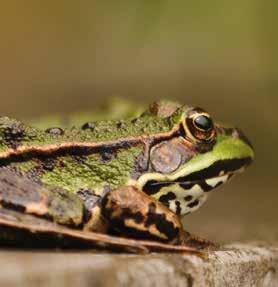
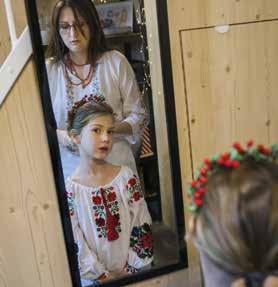
living on the street (page 42). These people find a safe haven with our partner organizations. They can turn to them for a listening ear, for help with legal proceedings or even just to get a sleeping bag when the winter shelter isn’t open. This direct form of assistance remains vitally important. After a long time, Izzy found a way to live with dignity in the Netherlands.
A new management team
2023 was also a year that saw familiar faces return to us. Rogier van der Weerd returned as managing director after an absence of three years, during which he completed a degree in artificial intelligence and worked on the use of this technology by national security agencies in the Netherlands. We thank his predecessor, Saskia van den Dool, for her efforts and her contribution to the work of Adessium. We are also pleased with the arrival of Carst Joustra. He previously worked for Adessium for over 11 years at operational level and has now returned as a board member.
Staying relevant in a rapidly changing society How can we stay relevant as a foundation in the ‘betwixt-and-between time’ with all its uncertainties, turbulence and discontent? What can we as a foundation do to help civil society organizations and initiatives to achieve their mission? Over the coming year, we will examine our strategy, approach, and methods, making adjustments as needed. We will do so using insights gained from partners and experts and we hope to communicate more about this in the course of the coming year. But one thing is certain: we will continue to pursue our mission. A mission that aims to achieve an open and just society, healthy ecosystems and equal opportunities for everyone.
Rogier van der Weerd Managing director Martijn Meijer Director of programs Left: the pesticide glyphosate is highly poisonous to frogs. Right: a Ukrainian family living in temporary housing in Vlaardingen. Martijn MeijerWe try to achieve a good balance between providing direct aid, support to target groups, and aiming for structural improvement. In doing so, we provide support for work that is not (yet) funded by the government or work that is still relatively underfunded. In addition, we deliberately keep part of our budget unallocated, which enables us to be flexible in responding to opportunities or significant events.
We ask our partner organizations to be open about obstacles they encounter, so we can work with them to find suitable solutions. We discuss with them whether they need broad institutional support or programbased support. As a learning organization we want to continually keep developing our own approach and share this with the philanthropic sector. We also seek out opportunities to collaborate within our field.
“We aim for a good balance between organizations that provide immediate aid to people in a vulnerable position and ones that focus on structural solutions. In some cases, both objectives are united in a single organization.”
Job Rijneveld, Social Initiatives program manager
“We support NGOs dedicated to achieve better regulation of harmful chemical substances. Many of these organizations are not yet adequately funded even though the scale of the problem is huge.”
Nina Koopman, People & Nature program manager
“Alongside the three programs in the budget, Adessium also maintains a reserve for flexible funding. This flexible funding means we can respond to urgent issues, for instance providing emergency aid following the earthquakes in Türkiye and North-West Syria.”
Martijn Meijer, director of programs
“It might not always be easy to tell a funder that you’ve encountered obstacles We encourage our partner organizations to promptly share this kind of information with us, as we are eager to help them come up with a solution.”
Martijn Roos, Public Interest program manager
“We support journalism organizations engaged in in-depth investigative journalism. Broad institutional support, also known as core funding, is crucial for them. This means the organization can make its own decisions about how to spend the funding. For instance, on journalists’ salaries, renting office premises or software. After all, a strong organization will be able to produce powerful journalism.”
Ebru Akgün, Public Interest program manager
“As a learning organization we want to avoid the situation where as foundations we work in isolation trying to reinvent the wheel. Having learning objectives that go beyond our day-to-day activities and our own bubble helps us to work consciously, effectively and efficiently.”
Lizzy Eilbracht, strategic learning manager
“We value collaboration with other foundations, as it enables us to not only exchange knowledge and strategies, but also to provide financial support to both existing and new partners in the field through co-funding. For instance, we collaborate with 24 foundations in the pooled fund Oceans 5, allowing us to work on a larger scale and pursue the shared objective of safeguarding our ocean.”
Loïs Schotanus, People & Nature program manager
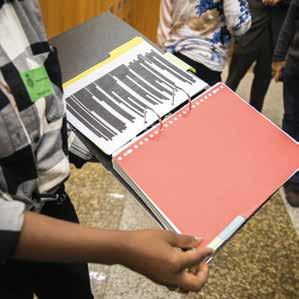
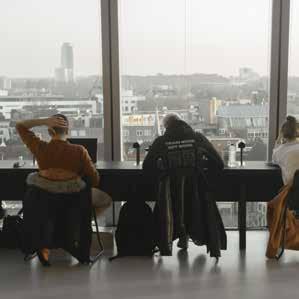

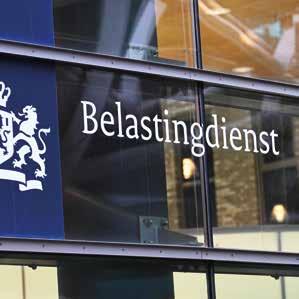
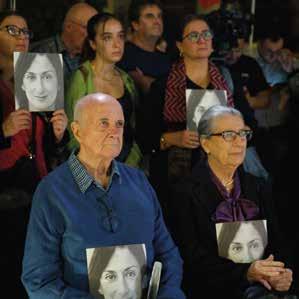
Adessium is committed to an open, democratic and just society. We strive to create a society in which every citizen can participate and stay informed based on independent and reliable reporting, and where freedom, security and privacy can remain guaranteed in a digital world. A society in which government and public bodies function effectively and act with integrity in the interest of citizens and the community.

*Source: Dutch National Social Media Survey 2024. minutes
That’s how many minutes – nearly three hours – young people under the age of 20 spend on social media every day.*
Every year, the statistics for social media use by young people and adults increase further. Not surprising when you realize that the algorithms are designed to keep you on social media as long as possible. Put simply, algorithms are complex mathematical calculations that determine what you get to see. The Digital Services Act (DSA) aims to introduce better protections for users of these platforms. This EU law, which came into force in 2023, regulates how digital platforms are permitted to advertise and how they are required to moderate content. For instance, as a user you’re given the option to use a recommendation algorithm, or feed, that isn’t based on your past behavior on the platforms. You can also access more information about who or what is responsible for an advertisement and why it is being targeted to you. We support ARTICLE 19, Bits of Freedom, BEUC (The European Consumer Organisation), Civitates Subfund 2, European Digital Rights (EDRi) and the Centre for Research on Multinational Corporations (SOMO), NGOs and pooled funds that ensure this legislation is actively implemented.
More about this theme on the next page >
“At a certain point everyone you follow on social media is sick”
Algorithms not only ensure that you spend hours on social media, they can also exacerbate mental health problems. Lonneke experienced this first hand when she was encouraged on social media to eat even less. She got trapped in a digital bubble. We spoke with Lonneke about her experiences and asked Bits of Freedom how the new legislation, the Digital Services Act, provides better protection for users.
“When you have an eating disorder, there is a weird kind of hierarchy”, explains Lonneke. “Many patients like to make comparisons: who has been admitted to the hospital most often? Who can eat the least? I remember that when I was about twenty I was having therapy in a clinic five days a week, but had to spend the nights at home. Then while I was having breakfast, I saw photos on Instagram of girls who had been admitted full-time. Images of beautifully presented bowls of porridge in the clinic’s sleek stainlesssteel kitchen. Or of someone on a drip in a wheelchair, with a balloon attached to it to celebrate that she had eaten something. It made me feel insecure: was I actually sick enough?”
A timeline full of bad examples Lonneke (now 30) was only thirteen when she developed an eating disorder. While she continued to discover more individuals experiencing similar struggles and more information online, her real world connections were slowly diminishing. It has now been eight years since Lonneke recovered from her eating disorder and she works as an editor on an online platform that provides a safe
space for young people with an eating disorder who are looking for information or want to talk about it. “Places like this are important”, Lonneke says. “Because many people with an eating disorder search for information or recognition and get caught up in what they find there. At a certain point everyone you follow on social media is sick and your timeline is full of information that actually gets in the way of your recovery.”
Lonneke went on to start her own account on Instagram, which she used to record her recovery process. “But when I look back at it, I see that by doing this I was actually keeping my illness going. Perhaps I even encouraged other girls in their eating disorder.” In the end, Lonneke deleted her account. “I gradually came to realize that idealized images on social media were incompatible with recovering. Because a recovery process is ugly and cannot be recorded in neat images.”
Although Lonneke did actually recover after that, a few years later she noticed the warning signals again. “Because was interested in Pilates and vegetarian food, Instagram started showing more and more videos about how you can take really good care of yourself. When I realized that I wasn’t succeeding at super healthy eating and taking extreme amounts of exercise, started to feel a certain dissatisfaction again. Why wasn’t I able to keep this up? also started to skip social activities, as I was anxious that
otherwise I wouldn’t be able to eat well. This time I recognized the signs and I was able to seek help in time.”
Stuck in an information funnel Fortunately, Lonneke was able to recover from this relapse. But she stresses her concerns about the clever algorithms used by social media like Instagram and TikTok. In the past, I had to open a laptop to browse websites, and later, I only had Instagram. Now, young people are constantly exposed to photos and videos on their phones throughout the day. This means they enter an 'information funnel' much faster than did back then. If you’re not far enough into your recovery process or maybe you’re right in the middle of dealing with your illness, I don’t know if you can get out of that without any help.”
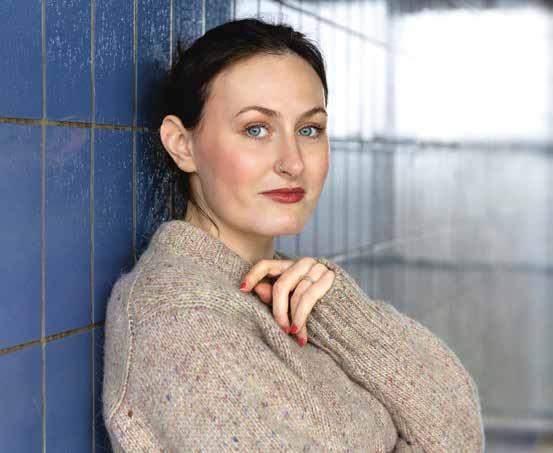
Lotje Beek is a policy officer at Bits of Freedom and one of her aims is combating the current algorithms of platforms like TikTok and Instagram. “As a consumer, it’s almost impossible to protect yourself against an information funnel like the one Lonneke ended up in”, explains Lotje. “Platforms are commercial organizations and they want to get you to scroll for as long as possible. So you won’t see things you don’t like or find interesting, but only things that you’ll respond to or be susceptible to.”
Bits of Freedom campaigned for a long time for the Digital Services Act (DSA), a European law that is designed to give users more control over the content they encounter on online platforms. . Lotje tells us: “As a result, users can now block content or disable the algorithm that’s based on their personal viewing behavior.” Lotje believes that this is a step forward, but not nearly enough. “It’s not in the platforms’ interests to limit how much the algorithms tailor content to what they know about the user. For instance, it turns out that the blocking feature doesn’t work well at all. That’s why it’s not effective to place the responsibility for what someone sees, solely on the user or the platforms themselves. We need laws and regulations to govern this.” Bits of Freedom reminds governments of this responsibility while also advocating for a greater variety in algorithms.. Lotje explains: “Not just the kind we see now based on what you’ve watched before, but for instance offering algorithms based on ‘news from the local area’ or ‘hobbies’.”
As a teenager, Lonneke was encouraged on social media to eat even less. “The Digital Services Act represents a step forward”Victims of the childcare benefits scandal giving evidence at a hearing of the parliamentary enquiry commission. The Dutch tax authorities used discriminatory algorithms and as a result they unjustly accused thousands of parents of fraud.
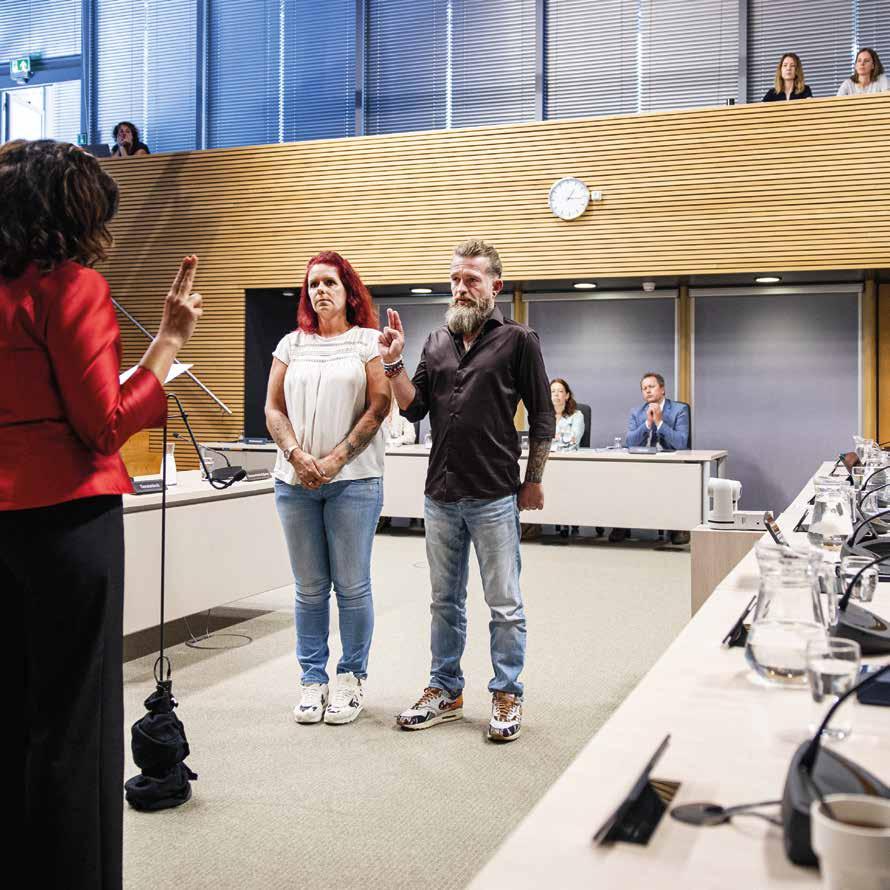
The phrase ‘a well-informed citizen is an engaged citizen’ is the common thread running through our work on the availability of quality information. That is why we support transnational collaborative investigative journalism in Europe. Our partner organizations also defend and uphold the role of journalism, as journalists face mounting pressures to their freedom to operate in Europe. Three significant issues and investigations involving our grantees in 2023.
1. Unfounded lawsuits against journalists
If journalists face a lawsuit because of their journalistic work, it is termed a Strategic Lawsuit against Public Participation (SLAPP). The aim of a SLAPP is not always to win but also to intimidate journalists and prevent them from disseminating information publicly. Media Defence provides pro bono legal support for journalists and media organizations dealing with this kind of intimidation. In 2023, Adessium co-financed the first European antiSLAPP conference. The purpose of this conference was to inform politicians involved with legislation intended to protect journalists and other watchdogs. Such as the anti-SLAPP Directive, a legislation that has now been adopted by the EU. The anti-SLAPP Directive is also known as ‘Daphne’s law’, after the Maltese journalist Daphne Caruana Galizia, who at the time of her brutal murder faced 48 active libel suits. Our partner organizations now have the important task of monitoring how the Member States implement this legislation at national level.
2. Discriminatory algorithms
Students with a migration background are disproportionately accused of financial fraud by student grant organization Duo, due to its use of algorithms. This was revealed by an investigation carried out by the Dutch press office for higher education issues
Hoger Onderwijs Persbureau (HOP), television program NOS op 3 and our partner organization investigative journalism platform Investico. The algorithm is fed with the ‘experiences’ of Duo staff. Moreover, there is no clear scientific basis for the detection criteria used. Following the release of this report, Duo has shifted to checking students on a random basis, without using the algorithm.
Our partner organization Lighthouse Reports also examined algorithms for their investigation ‘Suspicion Machines’. Fraud detection systems based on algorithms are used on a large scale in public welfare programs. The scores they generate could have life-changing consequences for millions of people.
For instance, the journalists discovered that the municipality of Rotterdam
was using these scores to discriminate against people based on ethnicity, age, gender and parenthood. The municipal government has now stopped using the algorithm due to the findings of this investigation.
3. Large-scale investigation into PFAS contamination
An exclusive investigation conducted by 18 European media organizations over several months has revealed over 17,000 PFAS contaminated sites throughout Europe. PFAS is a collective name for chemicals that are found in non-stick coatings and water-repellent materials, among other products (see page 31). The investigation, the Forever Pollution Project, also uncovered an extensive lobby aimed at diluting the proposed EU-wide PFAS ban. The investigation was published in dozens of media outlets throughout Europe. Arena for Journalism in Europe was responsible for coordinating and expanding the investigation team throughout Europe. As a result, the number of countries where this investigation received media attention increased from five to thirteen. Journalismfund.eu was one of the funders financing the journalists. This investigation strengthens the case for our partner organization Health and Environment Alliance (HEAL) and other organizations encouraging European and national decision-makers to support the legislation to restrict PFAS.
Lawyers representing one of the MEPs involved in Qatargate are surrounded by the press.
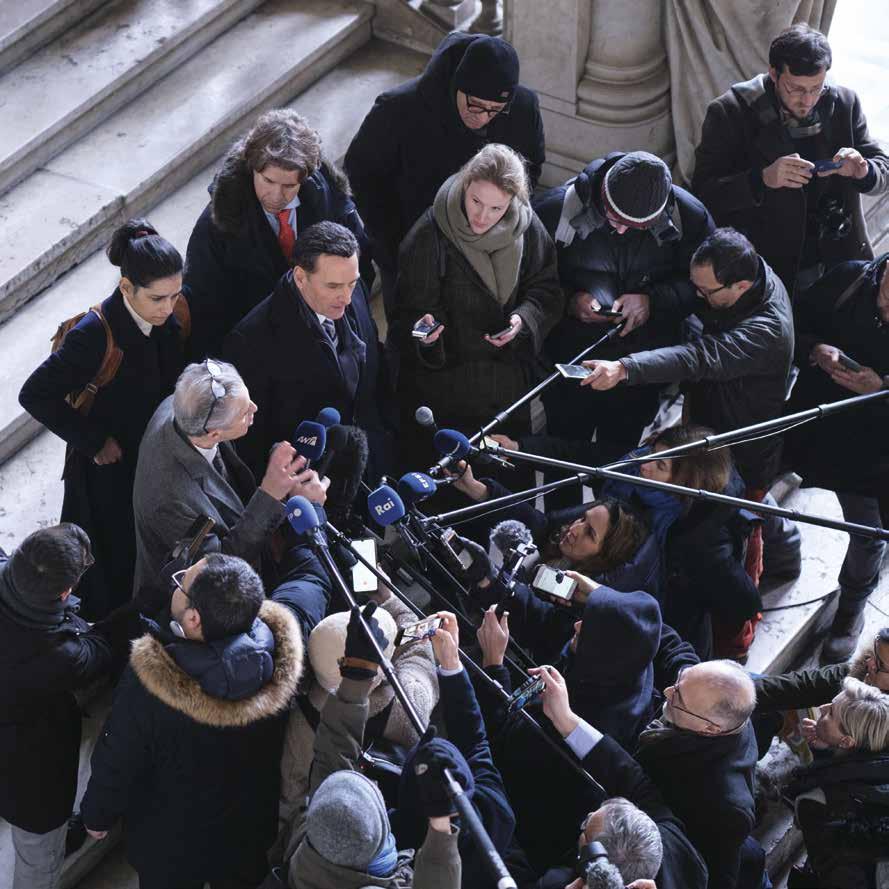
“Government policy is often completely obscure to citizens and companies”
Our focus within the Good public governance theme revolves around how our governments function at local, national and EU level. Are they effectively serving citizens and the public interest, and can they provide solutions to social issues? In 2023, various partner organizations identified specific ways to make improvements. We highlight three examples.
In a survey at the time of the Dutch parliamentary elections in 2023, Dutch people made it clear what they wanted the much-discussed new administrative culture to look like (source: Extra election publication by the Netherlands Institute for Social Research, October 2023).
A significant proportion of respondents, 68 percent, indicated a preference for open decision-making. The main tool that Dutch citizens can use to achieve this is the Open Government Act, which enables them to request the disclosure of public information. This new legislation was introduced in 2022 and one of its objectives was to reduce the government’s response time. Unfortunately, in 2023 the government was still not responding adequately to these requests for disclosure. Analysis by our partner, Open State Foundation, reveals that the average time taken to respond to a request under the Open Government Act has increased to 172 days, despite the legislation allowing a maximum response time of 28 days. Serv Wiemers, director of Open State Foundation, explains: “Access to government information is a human right. But in the Netherlands that still isn’t
sufficiently accepted. We now see that, partly due to our advocacy, government bodies are starting to address this. But true open government, the realization that public information belongs to all of us, is something that still scares many politicians and senior civil servants. That is why we need to make sure this remains a priority on the agenda.”
2. Transparency by the Dutch tax authorities
Martijn Nouwen, a university lecturer in tax law and coordinator of the Tax Transparency research project, was involved with the Open Government Act in a different way. At the beginning of 2023, he took the Dutch Ministry of Finance to court to ensure the timely disclosure of a large number of documents through a request under the Open Government Act. The court ruled in Nouwen’s favor. In an article in the NRC newspaper, Nouwen explains what the case was about: “Is a homeowner entitled to claim back the VAT on the purchase and installation of solar panels? And can the local baker transfer his business to his son in tax-efficient way? The Dutch tax authorities set out the answers to these and thousands of
other questions in their internal policy. The obscurity of this policy to citizens and companies undermines a fair and equitable tax system and negatively impacts taxpayer compliance.”
3. Qatargate in the EU
At European level, our partner organizations also work to promote integrity and transparency in decisionmaking. Our partners Corporate Europe Observatory (CEO) and Transparency International EU (TI EU) were the source of information for the media when ‘Qatargate’ unfolded. This scandal exploded when the Belgian police discovered 1.5 million euros in cash stashed in, among other places, an MEP’s suitcase. What ensued was the largest corruption scandal ever witnessed within the European Parliament. Bribes were paid by ‘fake NGOs’. Nicholas Aiossa, director of TI EU, emphasizes the importance of change and increased transparency: “Over many decades the Parliament has allowed a culture of impunity to develop, with a combination of lax financial rules and a total lack of independent - or, in fact, any - ethical oversight.” When the media storm died down, TI EU and CEO kept monitoring developments in this scandal closely. This enabled them to raise the alarm when the European Commission wanted to adopt legislation classifying NGOs as foreign agents, thereby limiting their freedom.
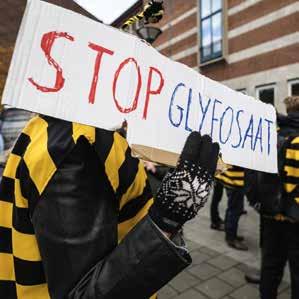


Adessium aims to create a society that takes a responsible approach to nature and the environment. Part of our work involves the conservation of valuable nature in the Netherlands and Europe. We are committed to healthy ecosystems where nature has room to regenerate. At the same time, we aspire to achieve a clean environment, free of visible and invisible pollution, also in the interests of our own health.
Themes:
• Healthy environment. Featured theme: fighting the use of PFAS. Page 30 + 32
• Nature under pressure Page 34
• Focus on the Mediterranean Sea Page 36
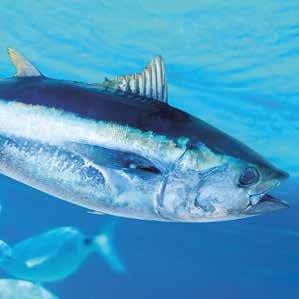
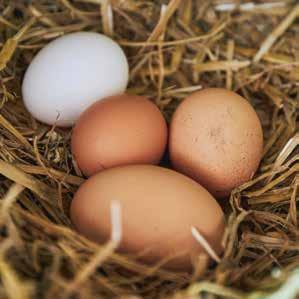
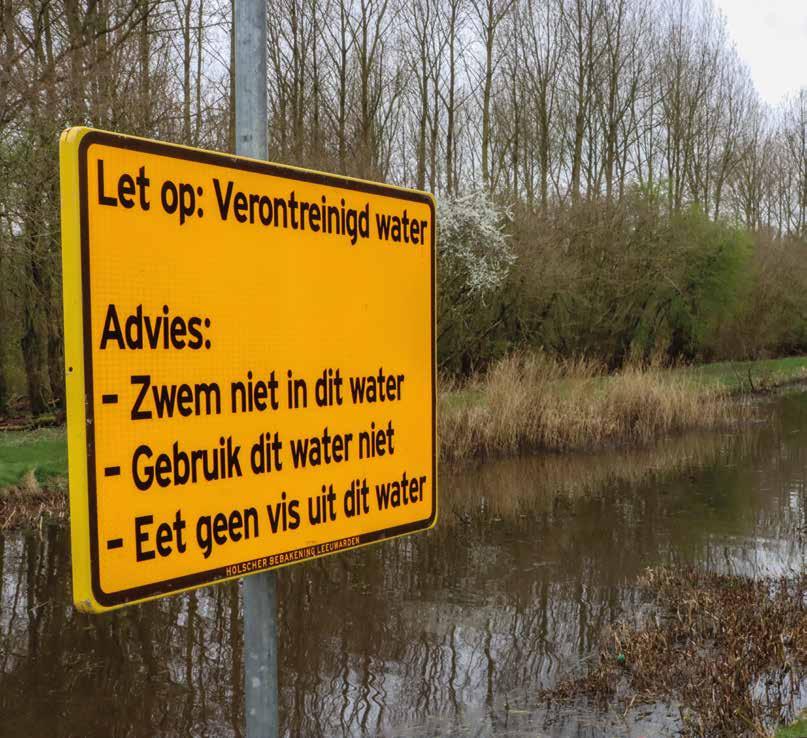
The estimated annual direct cost to healthcare in Europe as a consequence of PFAS exposure.*
During the past year, the general public has become increasingly familiar with PFAS (per- and polyfluoroalkyl substances). Investigative journalists got to grips with the topic (see page 25) and governments wrestled with the negative effects. PFAS is a group of more than 4,700 man-made chemical substances. These substances are used to make certain products, such as outdoor apparel and non-stick pans, resistant to grease, dirt and water. Exposure to PFAS can severely damage the immune system and there are strong indications that it could cause cancer. Our partner organizations ChemSec, CHEM Trust, ECOS, European Environmental Bureau, HEAL and Stichting Tegengif (Erase All Toxins) work to achieve stricter European legislation on the production and use of these harmful substances.
*Source: Nordic Council of Ministers, the official body for formal inter-parliamentary cooperation in Scandinavia.
More about this theme on the next page >
The chemical plant near the city of Dordrecht has been discharging PFAS into the river since the 1960s. Health scientist Marleen Beljaars grew up in that area and currently lives there with her husband and four children. Annelies den Boer from our partner organization Stichting Tegengif (Erase All Toxins) explains what still needs to happen to put a stop to the production of these toxic chemical substances.
“I never realized that the presence of Chemours meant that I was giving my children a cocktail of chemicals”, Marleen said in her statement at a hearing at the Provincial Council of South Holland. She believes that it is “unacceptable and sickening” that this producer of chemical substances ignores the fundamental right to a safe environment. Her speech made a big impression, going viral on the internet and listed in the top 3 speeches in September 2023 on Dutch public broadcaster NPO’s Radio 1, just after Zelensky’s speech.
Prominent advertisement in bus shelters
Almost six months later, Marleen reflects on the shock that followed the highly-publicized broadcast on Dutch documentary program Zembla, titled ‘The PFAS scandal’. The Zembla researchers showed that it had been clear for decades that the chemical substances were harmful, yet production still continued at the same rate. “Just before that television program aired, when I was not aware of its content yet, I noticed that Chemours had placed prominent advertisements in bus shelters,
with slogans like ‘A sustainable future for Europe’. And on YouTube and other social media platforms, the company was very evidently making efforts to reach people in this area. I heard a mother on the school playground literally repeating the message in these advertisements: ‘But they make products that are essential, don’t they?’”
Shock wave through generations Marleen and her family had recently moved house within Dordrecht when she saw the documentary by Zembla. “It really shook me up. We had even considered moving to a different city, but had decided to stay in Dordrecht. Otherwise I would have missed the city where I grew up. My first response was, ‘I need to get out of here right now. I have to save my children.’ Since then, I’ve been able to put it into perspective a bit. I mean, even in Antarctica you’re not completely free from PFAS.”
When reminiscing about her childhood in Dordrecht, her thoughts drift quickly to her family. “Looking back, my speech during the hearing was also made on behalf of my grandma, who died of cancer aged 47. She always went swimming in the river next to the factory, until the area was eventually closed for recreational use. Her death scarred the lives of her seven children, including my father. PFAS has sent a shock wave through generations of families in the area. Of course, I cannot prove that she died because of these chemicals, but
I always say ‘If she would have gone swimming in the Dead Sea instead of in this dead river, she would not have gotten cancer’.”
Wake-up call for politicians PFAS are not the first substances that turned out - in hindsight - to be harmful to people. As a health scientist, Marleen cannot understand that these harmful substances were allowed to be dumped in nature without consequences. “Take asbestos, haven’t we learned from that? Why doesn’t the precautionary principle, that a producer has to show that their product isn’t harmful to humans, animals and nature, get applied consistently? It's all about money. I want to give politicians a wake-up call: this is about the future of your children and grandchildren. These substances will never go away.”
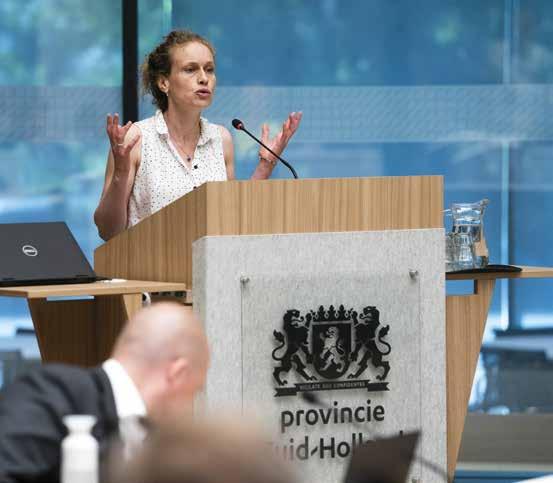
Annelies den Boer is director of our partner organization Stichting Tegengif (Erase All Toxins). This organization works together with European partner organizations to persistently fight for robust European legislation curbing the use of PFAS. The PFAS restriction is supposedly due to be adopted in 2025. “The race isn’t over yet though. We notice that there’s a strong lobby trying to weaken the proposed restriction. The upcoming European elections may have an effect on the PFAS restriction. The Netherlands has been a leader within Europe when it comes to the PFAS ban, but we will have to see what approach a new government will take. We have a role to play here, by continuing to communicate with politicians on all sides. I don’t see this subject as a ‘left-wing hobby’it concerns everyone’s health. At the moment, notice that we need to keep emphasizing that this isn’t just a problem for people living close to chemical industry sites. PFAS has even been found in eggs laid by pet hens kept in Friesland, where no production takes place at all. Fortunately, I notice that there is increasing resistance coming from citizens, doctors and scientists. Standing together makes us stronger as we communicate the important message that it’s everyone’s problem.”
Marleen addresses the hearing at the Provincial Council of South Holland on the discharge of chemicals by Chemours. “It’s everyone’sNatuur & Milieu worked with 772 citizens to organize measurements in 3292 small water bodies. Only 22 percent of these bodies have high water quality.
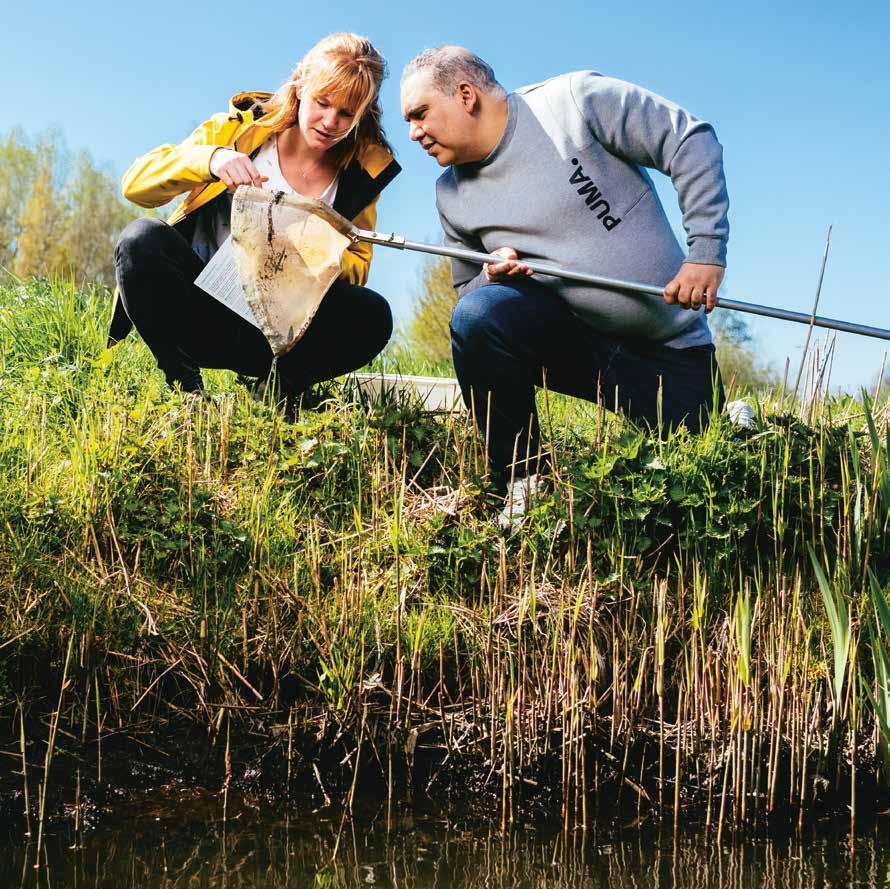
“Significant risks are associated with the use of glyphosate”
In the People & Nature program one of our aims is to alleviate the pressure on nature. In 2023, the risks caused by pesticides received a lot of attention in politics and the media. Our partner organizations work at local, national and European level to achieve stricter and more effective legal restrictions on the most harmful pesticides.
1.
One of the most common pesticides used in the Netherlands to combat weeds is glyphosate. This substance is controversial, as there are indications that it is carcinogenic, possibly associated with neurodegenerative diseases such as Parkinson’s disease, harmful to soil health and negatively affects bees and ecosystems. Glyphosate is used in various agricultural sectors, including the flower bulb industry. Meten=Weten (To measure is to know), a citizens’ initiative originating in the province of Drenthe, has concerns about the large-scale use of this substance. The ecologists at Meten=Weten take samples of soil, crops, manure and air in places where these substances should not be present, including organic vegetable gardens and nature reserves. This research shows that pesticides extend far beyond the fields they are sprayed on, even infiltrating deep into nature reserves. In 2023, this organization brought the importance of a ban on products containing glyphosate to the attention of the Dutch Trade and Industry Appeals Tribunal. The Tribunal is the highest court in the field of economic administrative law and has a leading role in the administration of justice in key areas. A decision on this case is expected in 2024.
To assess the presence of pesticides such as glyphosate in water within nature reserves and recreational areas, our partner organization Natuur & Milieu commissioned research to be carried out by the Dutch Institute of Environmental Sciences in the summer of 2023. This research revealed alarming results: toxic pesticides were found in water within 80 percent of the Dutch nature reserves and recreational areas examined. These are areas where protected animal and plant species live and where we go swimming and walking. The most toxic pesticides are also the ones that exceed the approved level most frequently in these areas. In 2023, Natuur & Milieu joined forces with other organizations including the trade union FNV and the Dutch association for Parkinson’s disease, Parkinson Vereniging. In a joint campaign they asked the Minister of Agriculture, Nature and Food Quality, to vote in the EU against the extension of the use of glyphosate for another fifteen years. Despite significant social pressure and against the wishes of the Dutch House of Representatives, the Minister abstained from voting. Rob van Tilburg, director of programs at Natuur & Milieu, explains:
“The European approval policy is not properly organized. Significant risks are associated with the use of glyphosate. Scientific studies have made that very clear. Despite this, the Netherlands fails to exercise its vote and Europe just continues to grant extensions.”
3. Stricter EU legislation
In the Green Deal, Europe sets out its ambition to reduce the use of chemical pesticides in agriculture by 50 percent in 2030. Pesticide Action Network Europe (PAN Europe) and Friends of the Earth Europe (FoEE) were the driving force behind a coalition of NGOs working at European level to advocate conversion of the Green Deal ambition into binding EU legislation. Unfortunately, the EU institutions have been unable to reach agreement on this, partly due to intense lobbying by the chemicals industry. This means that reducing the use of pesticides will remain on our partners’ agenda in the coming years. Campaign leader Clara Bourgin of FoEE tells us: “We bring to light the way certain political parties and lobbyists are undermining this legislation. We also help our groups in the various EU countries to carry out their work at a national level, so that they are able to put pressure on their governments for better regulation. The current context is challenging, but the work is far from over and we certainly see opportunities around the EU elections and afterwards to get pesticides back on the agenda.”
A cluster of squid eggs in the Mediterranean Sea.

In the People & Nature program, we also aim to strengthen the network of marine protected areas in the Mediterranean Sea. Additionally, our partners work to decrease fishing pressure on marine ecosystems by improving compliance with regulations.
1. 30x30 ambition
“The ship has reached the shore”, announced UN conference president Rena Lee. Following many years of negotiations and failed UN summits, an historic agreement on the protection of the oceans was reached on the 4th of March 2023. A remarkable achievement and culmination of years of dedicated effort by numerous current and former partner organizations, including Oceana and the High Seas Alliance. This High Seas Treaty is designed for the conservation and sustainable use of areas that are beyond national jurisdiction. By 2030, 30 percent of these international waters must be protected. This objective, known as the 30x30 initiative, is deemed by experts as the minimum commitment necessary to prevent a total collapse of marine ecosystems. The situation in the Mediterranean Sea underscores the critical necessity of the 30x30 ambition. At the moment, less than 10 percent of this sea is protected and less than 1 percent is completely closed to human activities such as fishing or oil extraction.
As part of the Med Sea Alliance, seven NGOs have joined forces to hold governments in various countries, including Spain, Italy, and Tunisia,
accountable for implementing effective marine conservation measures.
In addition to expanding marine protected areas, our partners also focus on limiting destructive fishing within vulnerable marine ecosystems. For instance, the practice of bottom trawling, which involves dragging fishing nets across the seabed, disturbing its top layer and leaving behind significant damage. Our partner MedReAct has spent years campaigning for more areas where bottom trawling is banned. In 2023, MedReAct initiated campaigns to have four new areas close to Spain and Italy designated as Fisheries Restricted Areas (FRAs). A successful example of a FRA is the Jabuka/Pomo Pit, located in the Adriatic Sea between Croatia and Italy. This area is an important breeding ground for overfished species, such as hake and langoustine. Ever since these measures have been in place, this FRA has evolved into a biodiversity hotspot.
3. Increasing transparency Better compliance with fisheries regulations is essential to drastically reduce overfishing in the Mediterranean
Sea. New EU regulations will help with this. In 2023, in part due to the efforts of our partner ClientEarth, a revised EU fisheries control system was approved. The new provisions will require all EU fishing vessels to be tracked via a vessel tracking system (VMS) and all catches will need to be recorded via electronic means. Additionally, CCTV systems will be implemented on large vessels to strengthen compliance. Full digital traceability throughout the supply chain will enable authorities to more effectively tackle illegal, unreported and unregulated (IUU) fishing. Local awareness also plays a crucial role in driving change. The Mediterranean Media Initiative, an initiative by the Earth Journalism Network, trains and supports local journalists and media organizations in the region to expertly report on Mediterranean marine issues. During the past year, journalists investigated and wrote about illegal smuggling routes for coral, the effects of underwater noise pollution on marine mammals and the impact of destructive fishing methods such as dynamite fishing and bottom trawling. Local journalists and media organizations are often well-versed in the country-specific context. This expertise enables them to present stories that resonate with the local community and shed light on events that typically occur far offshore and out of sight.
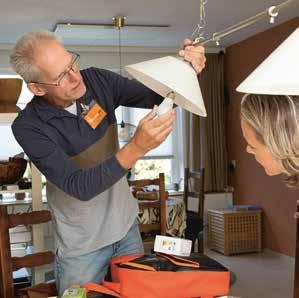
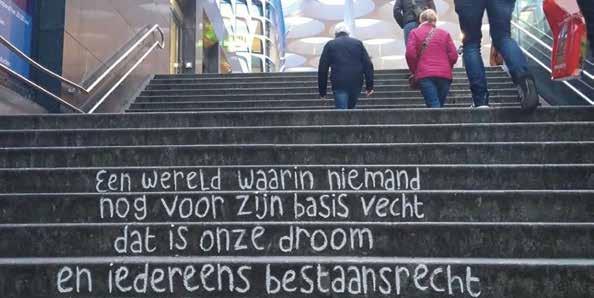
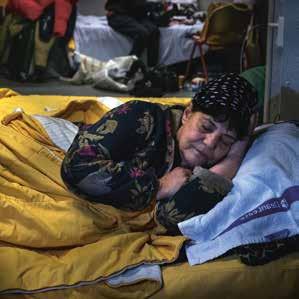
Adessium is committed to an engaged society in which everyone can flourish. A society that is characterized by humanity and solidarity. We support organizations in The Netherlands that offer help and assistance to people who have become vulnerable as a result of the situation they find themselves in. We also support initiatives for the humane treatment of refugees, as well as initiatives that boost young people’s involvement in society.
Themes:
• Migration and asylum. Featured theme: undocumented migrants in the
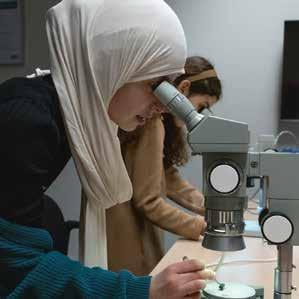
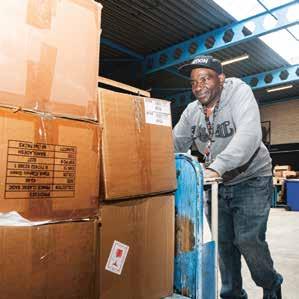
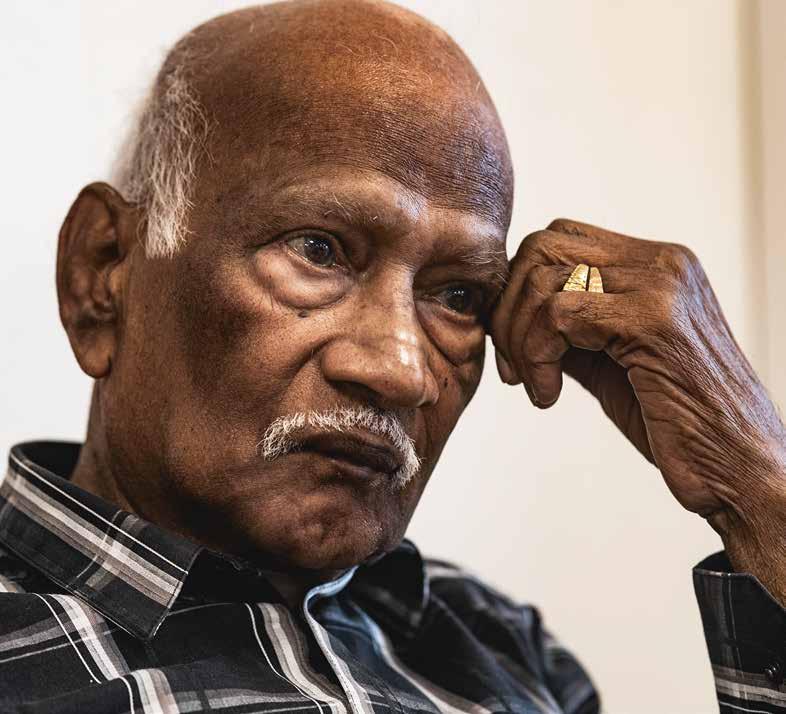
Some undocumented people have already been living here for over 40 years without official papers.
These undocumented people may have arrived here as migrant workers in the 1980s. Or perhaps they moved to the Netherlands after Suriname became independent and could no longer obtain a Dutch residency permit. “I’ve spoken to undocumented migrant workers who have worked here for decades. Should they lose their job, get sick or get evicted from their homes, they have a big problem. The way we treat these people is horrific”, says Martijn van Leerdam, pastor and director at the Pauluskerk in Rotterdam. Besides the Pauluskerk, we also support other organizations that are committed to helping undocumented people: ASKV/Steunpunt Vluchtelingen, Den Haag Wereldhuis (Stek Den Haag), Doctors of the World, Landelijk
Ongedocumenteerden Steunpunt (LOS), Protestantse Diaconie Amsterdam, Rotterdams Ongedocumenteerden Steunpunt (ROS), Stem in de Stad.
More about this theme on the next page >
“There was a huge, invisible wall shutting me out from society”
43-year-old Izzy escaped the terrible violence in his home country of Sierra Leone and fled to the Netherlands. His asylum application was refused, but returning to Sierra Leone was not an option. Without documentation, Izzy was condemned to a brutally hard life of illegality. A visit to the Worldhouse run by the Protestantse Diaconie Amsterdam was a turning point for him.
“It might sound crazy, but sometimes I still sleep on the ground”, Izzy says, pointing to a corner of his two-bedroom flat. “At times when it suddenly feels too overwhelming - the idea that I have my own house and my own bed.” Then I have flashbacks to all those years. The war, the flight to safety, life on the streets. The rejection, the loneliness. The next morning I wake up with mixed feelings. Huge relief because I have a roof over my head, but also sadness. Because there are so many people still in the same situation was in then.”
Izzy was only twelve when war broke out in Sierra Leone. Armed gangs used terrible violence against civilians. Almost all of Izzy’s family died. When he was 22, he fled the country. After a long, dangerous journey that took months, he arrived in the Netherlands.
“Even though the fighting was still going on in Sierra Leone, a peace agreement had just been signed”, Izzy explains. “This meant that my asylum application was refused. Soon after, I received a letter telling me I had to leave the asylum seekers’ center where I was staying.”
Feeling hunted
That was in the winter of 2003. Izzy can still remember his first night on the street very well. “I spent it under a bridge, in the Bijlmer area of Amsterdam. ‘Where is life going to take me?’, remember wondering.” He could never have imagined that he would end up spending eighteen years living on the streets of Amsterdam. “The next night I found an empty house on a building site, but a security guard sent me away. That feeling of being hunted never went away. You’re not welcome anywhere, they always make you go away. ‘You survived the war, you can survive this too’, people sometimes said. Maybe there weren’t any bullets whizzing past my head in the Netherlands, but life on the streets is a brutal struggle. Finding a safe place to sleep each day is a battle in itself. Thousands of times didn’t manage and had to sleep on the street. I tried to get help many times. One of the officers at a local police station even recognized me when I was called in yet again to explain my situation. But the answer was always the same: there’s nothing we can do.”
In the meantime, the Dutch Immigration and Naturalization Service (IND) was trying to send Izzy back to Sierra Leone, but the embassy did not issue the necessary documents. So Izzy was caught in a bureaucratic deadlock, just like many other refugees who have been refused asylum. No documents to start a
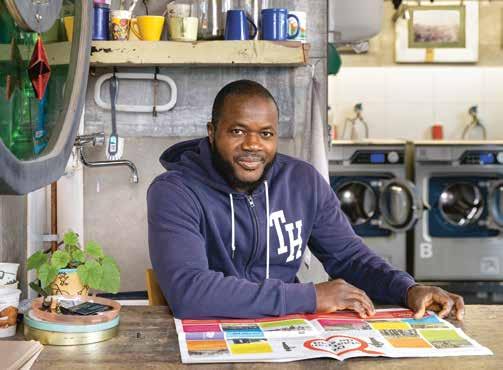
says: “Maybe there weren’t any bullets whizzing past my head in the Netherlands, but life on the streets is a brutal struggle.”
life in the Netherlands, but no documents to go somewhere else either. And there are very few doors that will open for someone with no residence permit or identity documents.
“I remember there was a kind of community center where you could have a hot shower for fifty cents, but even for this I needed to fill in my address. When I explained that couldn’t do that, the receptionist gave me a strange look.
‘Doesn’t everybody have an address?’”
“That feeling that you never really belong was the hardest part”, Izzy reflects. “I had this image of the Netherlands as an open society, where all cultures could co-exist. But there was a huge, invisible wall shutting me out of that society. A social barrier. And on my side of the wall, the world was empty.”
Over the years, Izzy lost his faith in the future and in other people. “People know
that they can take advantage of you. sometimes let myself be persuaded to work illegally. These jobs were difficult and dangerous. Long days or nights working on building sites or at the docks. One time, I had worked for a month but then I only got paid for one week. I threatened my supervisor that I’d go to the police, but we both knew I wouldn’t. After all, what rights did I have?”
A cup of tea that meant so much
“When you’re undocumented, you’re totally dependent on others”, Izzy emphasizes. “You really don’t want to have to ask, or even beg, for everything you need. It does something to your sense of humanity, when you have to ask for an apple at a market stall because you’re hungry. When it was really cold, I sometimes went into a bar. ‘I’ll be honest,
I’ve got no money’, I would say to the barman. Sometimes they gave me a hot cup of tea. It meant even more to me those times when the barman came to sit with me. Someone taking the time to listen reminded me that I was just another human being as well.” Izzy experienced the same feeling of humanity when he first entered the Worldhouse run by the Protestantse Diaconie Amsterdam. “I immediately felt comfortable”, he says, talking about that first visit. “A strange feeling that I hadn’t had for years. In the Worldhouse, I saw people from all different cultures talking, working, learning and cooking together. This was the Netherlands as I always saw it from the other side of that huge wall, but now it was within reach, accessible for me.”
No longer alone
Izzy views his visit to the Worldhouse as a turning point. “Even though it took another eight years from that first visit until I finally got my residence permit*, from that moment things did start to change. was able to take courses, give presentations in schools about my situation and get referred for psychological support. My life was no longer on hold. It gave me the strength to go on. Also, was no longer fighting my battles alone, as now I had a place that could go to after another cold night. A sort of home.”
*Izzy ultimately obtained a residence permit on medical grounds. One of the reasons for this was the diagnosis that he was suffering from post-traumatic stress disorder (PTSD).
IzzyAn outing to the House of Representatives with IMC Weekendschool.
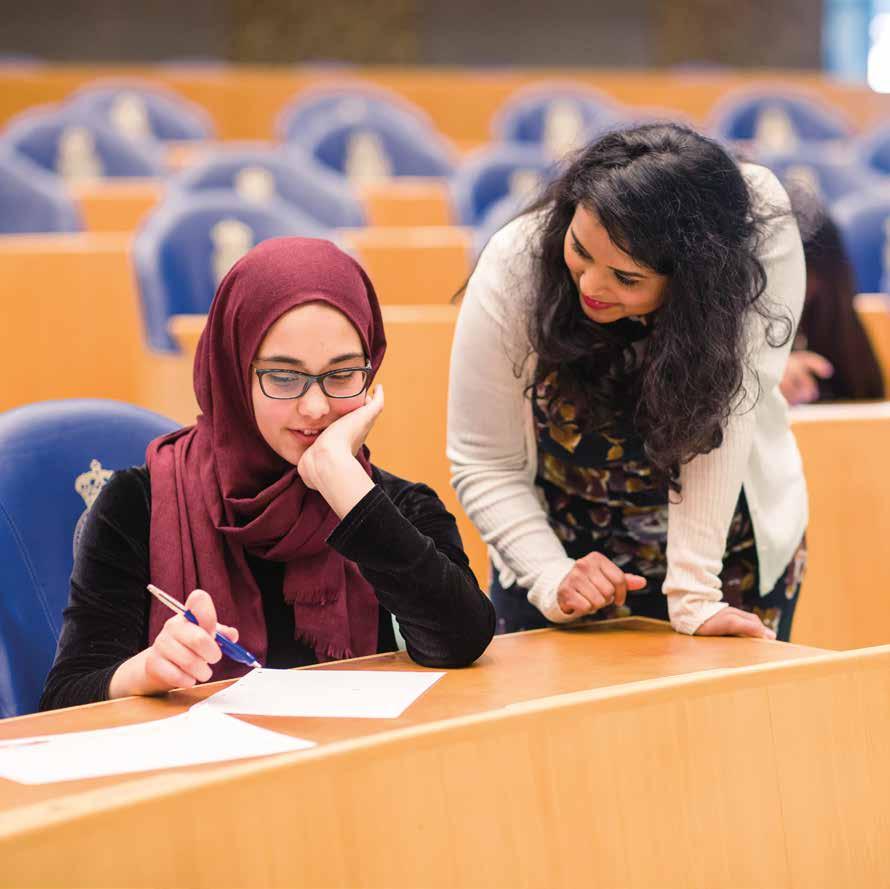
“It is important that young people get to know the world”
In our Youth and society theme, one of the groups we focus on is young people who need some support to help them discover their talents. We highlight three partner organizations that enable young people to expand their network, meet like-minded people and work to build a future for themselves.
1. Professionals volunteering in the classroom
A guided tour of the House of Representatives given by members of the House and debating in the House chamber under their supervision?
Pupils at IMC Weekendschool in The Hague experienced this. The tried-andtested formula at IMC Weekendschool, involving lessons from professionals, ensured the pupils were well-prepared for this big day.
Pupils from the age of ten upwards learn all kinds of things, such as making a diagnosis with a family physician, programming with an IT specialist, putting out fires with the fire brigade, debating with an alderman, preparing judgments with a judge and writing articles with a journalist. The volunteer guest teachers also learn from their pupils: the children’s curiosity and unprejudiced attitudes make them see their own profession or trade through different eyes. Heleen Terwijn, founder and director of IMC Weekendschool, explains: “Our goal is that young people from all levels of education and all social backgrounds can make informed choices enabling them to take their place in society. To work out what you
want to be when you grow up, you first need to get to know the world.”
2. Children of divorced parents
“We are writing this letter to let you know how we feel. ‘We’ are the 86,000 children a year who are told that their parents are separating.” This is the start of a letter that Villa Pinedo composed together with children of divorced parents, drawing on their own experience to help other children struggling with their new situation. Young people also engage in voluntary work and can become an Online Buddy, providing support to other children and young adults. Elise Straver of Villa Pinedo is very proud of the establishment of the Villa Pinedo School of Experience: “Last year, we started an experience learning programme for our volunteers. We have trained our four hundred existing volunteers and almost one hundred new volunteers in various roles, such as speaker, youth ambassador, content creator and representative. These roles have been newly developed so that these young people can also get involved in other ways, not just as an Online Buddy.” A response from a parent after two young people shared the stories of their own
experience during a meeting: “This awareness and experience motivate me to give my daughter the most loving and carefree childhood possible. Thank you for this. I will carry your stories with me in my heart.”
3. Taking action for other people What do you want to do for those around you? That’s the central focus of the I Am Great project by the Dutch National Youth Council (NJR). Young people come up with a plan and then carry out the activities they thought of. NJR offers financial support, coaching and advice. For instance, Milan organized an election festival in the run-up to the elections for the House of Representatives. At the festival, young people were given more information about the options and encouraged to vote. Milan tells us: “Afterwards, young people said they learned a lot. They even said that this led them to vote for a different party. So the event was definitely useful.” Sayna got together with three other young people to organize an event at the asylum seekers’ center in Utrecht. She baked Dutch treats and decorated them with the children. Sayna explains: “Lots of children came and got involved. The parents and children were so enthusiastic! The asylum seekers’ center really wants to work with us again in the future.”
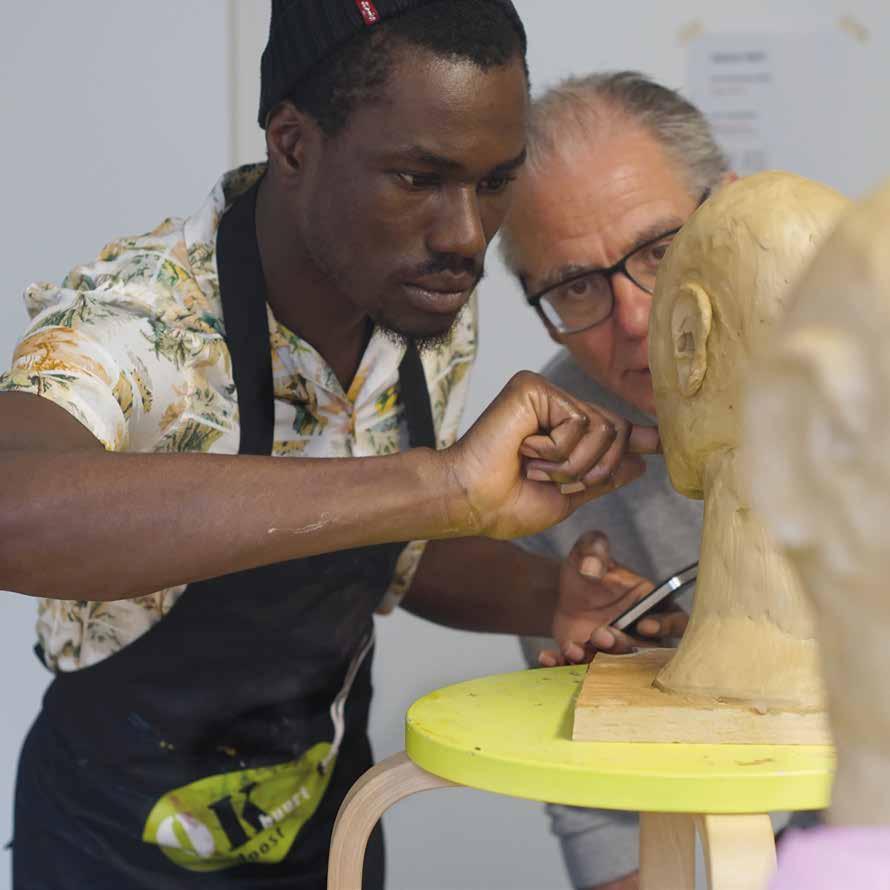
“It turned out that they actually listened to what I had to say”
The continued rise in the cost of living in the Netherlands in 2023 has resulted in an increasing number of people struggling financially. Families with children, in particular, are struggling to make ends meet. In our Help and opportunities theme we see that in these difficult times citizens are offering a helping hand to other citizens.
1. Too far in the red to think green In the Netherlands more than 600,000 households are affected by energy inequality. They have high energy costs, live in a poorly insulated rented home and have a low income. This is shown by research conducted by the Netherlands Organization for Applied Scientific Research (TNO) based on data provided by Statistics Netherlands. To save money, people don’t turn on the heating or don’t heat up their food. When it comes to making their homes more sustainable, these tenants are completely dependent on the public housing agency or their private landlord. Since 2016, local energy banks have been working to help these vulnerable households. Volunteer energy coach Kevin Priem tells us: “I try to help households to get a grip on their energy use, giving them control over their energy bill. This may involve energy-saving measures, but sometimes the main focus is on changing behaviors, for instance just setting the thermostat to a lower temperature at night.” The energy coaches work closely with local organizations, public housing agencies and municipalities. At the moment there are energy banks in eleven regions. Adessium supports the national
organization Energiebank Nederland in developing local energy banks further and setting up new locations.
2. The scope of solidarity
What’s the value of solidarity? This question prompted founder Denise Harleman to start Collectief Kapitaal in 2020. A group of one hundred people got together and an initiative was developed that the participants believed did justice to the meaning and scope of solidarity.
Each of the participants donated 50 euros a month, for eight months. The objective was to give people who were experiencing financial difficulties a basic income of 1000 euros. This resulted in practice-based research, knowledge gained through doing. If you decide to redistribute money by getting together as a collective to give a person some financial leeway, how do you distribute that money? Who is eligible and why, and how do you assess that?
During the process, countless follow-up questions arose, which ultimately led to the parameters for the lottery. Denise Harleman reflects: “What’s needed to create a society in which everyone has a secure livelihood? By asking this question, we got something started. We challenged existing structures, powers
and expectations. It’s a quest to find an alternative way, by thinking big and looking further than existing ideas and social concepts.”
3. Giving young people the opportunity to become debt-free Another great initiative that brings people together is ONSbank. This organization believes that young people’s debt problems cannot be solved just by giving them training in how to get your finances in order. You also need the energy to turn your life around and change your behavior. This becomes easier if you know who you are and what you want, if you have a sense of self-worth and the ability to see opportunities again. Art, music, sport and theater help ONSbank’s participants to find the answers to questions such as ‘Who am I, what can I do and what do I want?’ They are also assigned a volunteer debt time-out coach. Together they arrange that for at least six months the debt is frozen and does not increase. This reduces stress for participants and allows them to work on their own development. Former participant Daniëlle explains: “I thought, it’ll just be yet another organization that really only writes down your name but doesn’t actually do anything much. And then I discovered that it wasn’t like that at all. It turned out that wasn’t just a number and they actually listened to what I had to say.” In the ONSbank Next Level program, former participants use their experiences to help others, for instance by talking to creditors.
A workshop on sculpting a self-portrait in clay by Johan Wagenaar, sculptor and one of the initiators of the ONSbank program.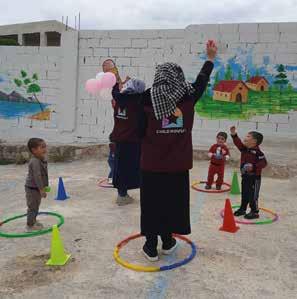
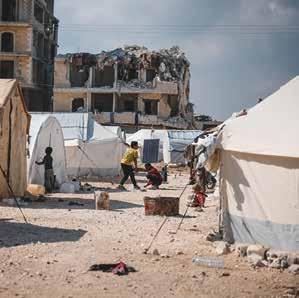
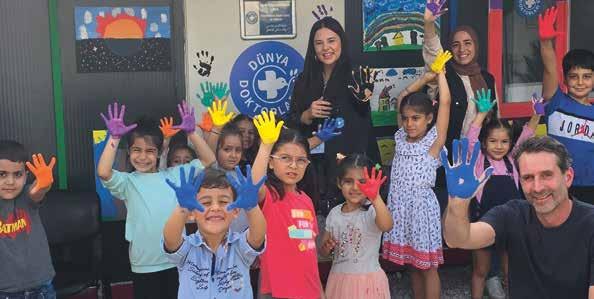
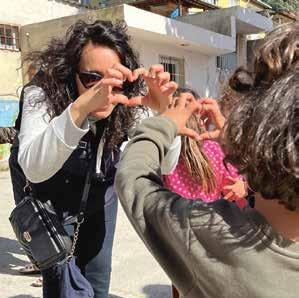
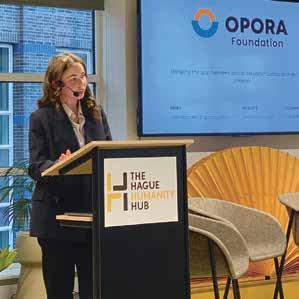
In addition to its three programs, Adessium Foundation also maintains a reserve in its budget for flexible funding. This flexible funding means we can respond to special opportunities, urgent social issues or current events. Themes:
• Emergency aid in Türkiye and North-West Syria Page 50
• Support for Ukrainian refugees Page 53
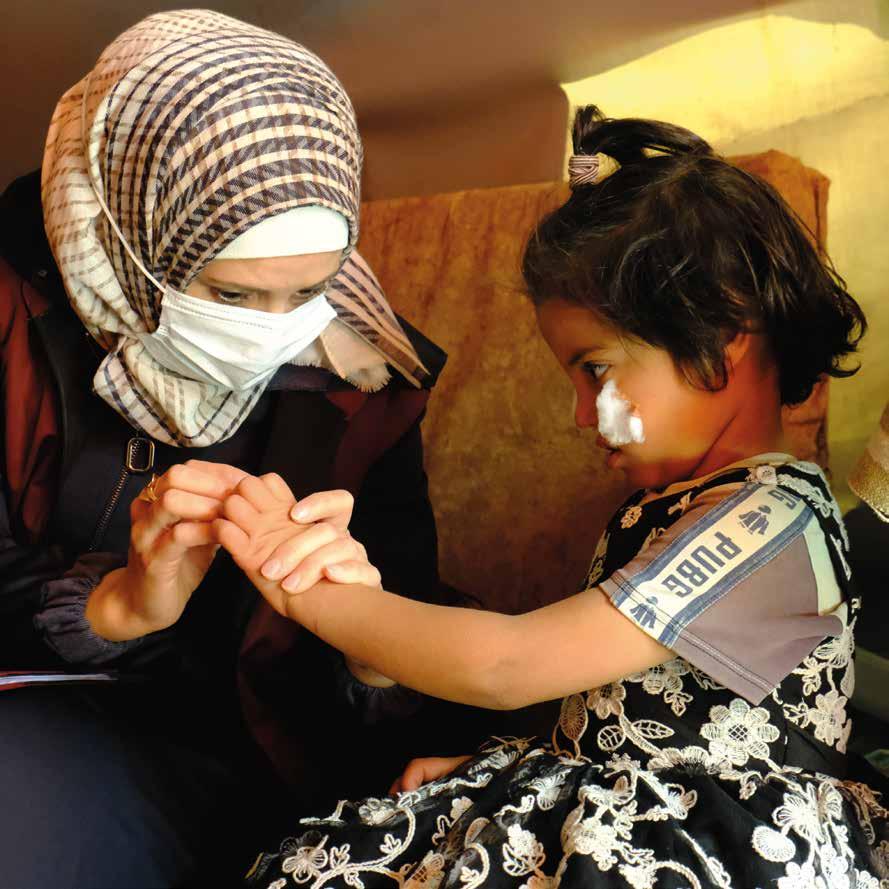
Buildings that collapsed completely, families torn apart and immeasurable grief. Images of the effects of the earthquakes at the beginning of February 2023 in Türkiye and North-West Syria were seen all around the world. Adessium Foundation supports emergency aid organizations in this severely affected region. We spoke to Aleaddin Janid, director of Child Houses, one of the local organizations that our partner organization Choose Love works with in North-West Syria. Child Houses supports children who are alone or separated from their family.
Can you tell us about the first few weeks after the earthquakes?
“It was totally unexpected and surreal. Before the earthquakes, the region had already suffered from 12 years of war, bombings and shootings. The majority of the 4 million people living there were displaced people, who had fled from other parts of Syria. 94 percent of the people were living below the poverty line. The NGOs operating in the area had emergency plans in place for war-related disasters, but not for earthquakes of that scale. Our shelters were totally destroyed. During the first earthquake, one of the carers ran out of a shelter with three babies and another escaped with two babies under her arms. Fortunately, we only had five infants in our shelter at the time and the rest of the children were able to escape to safety unassisted. The first two days after the earthquake, I kept getting messages from staff asking for time off to bury family members or care for an injured family member. Everyone was affected by the disaster. We didn’t just need to arrange safe accommodation for the children in our
care, we also provided our staff with tents, blankets and other essential items. It’s unbelievable, but only a day or two later all the staff were ready to take care of the children at Child Houses again.”
Every child has a story. Is there any one story that you’ll never forget?
“The one that springs to mind is the story of Dima, the little girl who truly had all the odds against her. She was born premature, at only seven months. Her mother fled the hospital as soon as she felt strong enough. Perhaps she wasn’t married and hadn’t intended to get pregnant or she was so poor that she couldn’t take care of a baby. There was no incubator available, so Child Houses had to organize one for Dima as soon as possible. Then it turned out that she had a milk allergy as well... Every day we encountered a new complication. We took care of her for four months and finally found her a foster family. She was nine months old when it became clear that she had a severe chromosomal abnormality. Doctors said she would probably never develop beyond the mental age of a toddler. The family couldn’t cope and brought her back. We then consulted a commission of three Dutch doctors. They arranged for Dima to have tests, which meant they were then able to prescribe a life-changing medicine. The staff at Child Houses saw her change from a little girl who just stared straight ahead all day into a child who started to follow people around
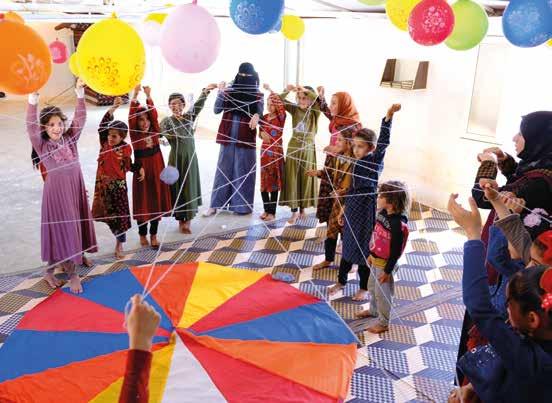
Some light relief playing games in one of the Child Houses shelters.
with her eyes. It was a miracle! No-one wanted to foster her because of her condition, until an amazing couple saw her. They had actually come to offer shelter for a newborn baby. They heard Dima’s story and decided to take her into their family. To me, these people are true heroes.”
What’s the situation like at the moment?
“It’s hard to imagine, but there are children in this region who have never lived in a house, or been to school. Children who grew up during the war and then had to experience this disaster as well. The after-effects of the earthquakes are perhaps even
Director of programs Martijn Meijer explains what we take into consideration when choosing aid agencies operating in the areas affected by the earthquake: “We believe it is crucial that our donations go to the most urgent needs in the region. For instance, medical aid, shelter, food and psychological support. We also think it is important that these organizations were already present in Türkiye and Northern Syria before the earthquakes, so that they are well aware of the local needs and how they can respond to them as quickly as possible. Our focus here is on organizations targeting the most vulnerable groups, such as children, people with a disability and refugees. This ultimately led us to choose three organizations: Doctors Without Borders, Choose Love and Doctors of the World.” A selection of the work that these organizations have carried out in difficult circumstances:
• Choose Love provides financial support to thirty local partner organizations that were already operational in the regions of South-East Türkiye and Northern Syria before the earthquake. Their activities include conducting rescues, providing shelter for children and distributing meals.
• Doctors of the World’s activities in the affected areas involve providing health screening, distributing medication and initial psychological support for trauma.
• Doctors Without Borders donates emergency relief items, supports hospitals in the affected areas, provides mobile health clinics, supplies hygiene kits and installs toilets and showers.
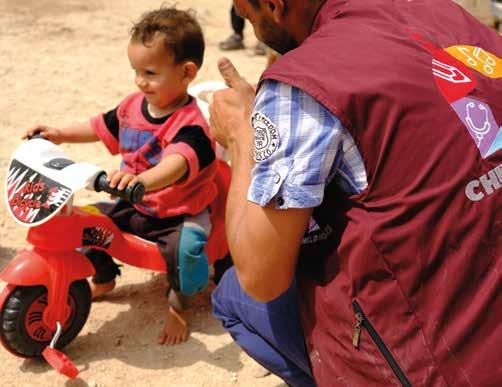
offer shelter for fifty children, but in fact we could fill a thousand places. We are extremely concerned when we hear that the World Food Programme is going to stop food distribution to our region and that the funds are drying up due to other emergencies in the world. So I keep saying to anyone who will listen: please do not forget North-West Syria. Do not forget the families and children who are struggling to survive in these harsh conditions.”
worse than the disaster itself. People were already poor, they were already barely surviving. The earthquakes meant that most of the few people who had an
income lost their place of work as well.
The number of children who are in need or living on the streets alone just keeps growing. Child Houses is currently able to
Part of our Flexible Funding budget is allocated to supporting Ukrainian refugees in the Netherlands. Opora Foundation is one of our new partner organizations and its aim is to bridge the divide between refugees and decision-makers. The predominantly Ukrainian team carries out research, including for government bodies, provides legal support and runs a project organizing psychological support for refugees. Chairman and founder Maria Shaidrova explains: “We’re very proud of our Empathia project for psychological support. Our dream was to get Ukrainian professionals, in this case psychologists, integrated into the Dutch system. That proved more complicated than we originally thought. We had to convince the government of the importance of this issue, make contact with family physicians and ensure that the Ukrainian professionals were hired. In the end, we got a motion through the House of Representatives and with our team we worked really hard, including setting up an emergency phone line, getting degree certificates checked and creating a website with an interactive map showing where you can get psychological support. We also had to get in touch with the right people at the Dutch Association of Mental Health and Addiction Care and spread the word among the Ukrainian community in the Netherlands. We knew it was really important to act quickly. Research shows that 20 percent of refugees experience some form of post-traumatic stress disorder (PTSD). We hope that in the future Empathia will ensure that refugees from other countries also receive psychological support earlier, are more likely to be employed as professionals or are given the opportunity to develop.”
Support Ukrainian refugees Child Houses supports vulnerable children affected by the earthquake.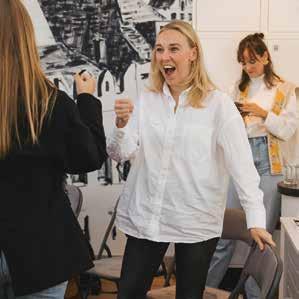
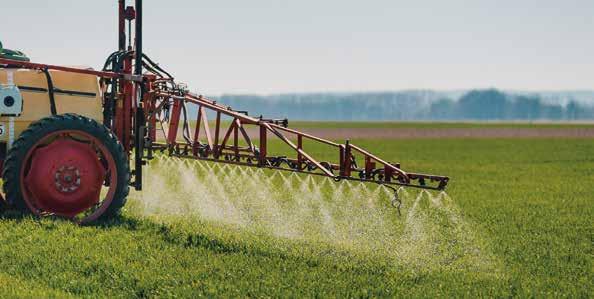
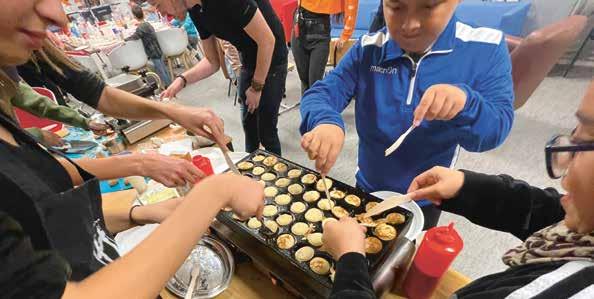
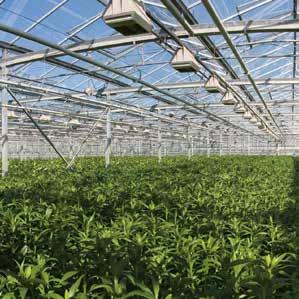

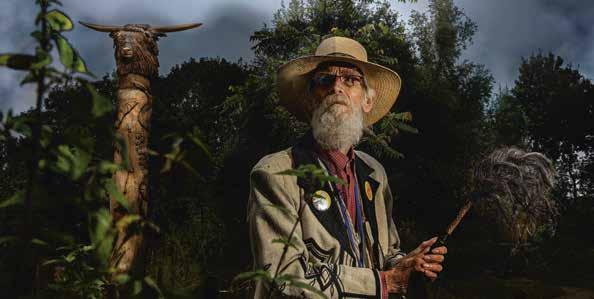
Adessium Foundation was established in 2005 by the Van Vliet family, which has a background in asset management. The Foundation is recognized as a ‘public benefit organization’ (ANBI) by the Dutch tax authorities. As stipulated in multi-year agreements, Adessium Foundation periodically receives donations from an affiliated foundation which oversees capital set aside by the Van Vliet family. The allocation of donations by Adessium Foundation meant for public benefit is strictly separated from its asset management. Adessium Foundation does not receive any other resources than what is gifted by the family.
Adessium Foundation is a member of the Association Foundation in the Netherlands (FIN) and the Philanthropy Europe Association (Philea). Adessium Foundation subscribes to the Philea code of conduct and meets the FIN criteria for good governance

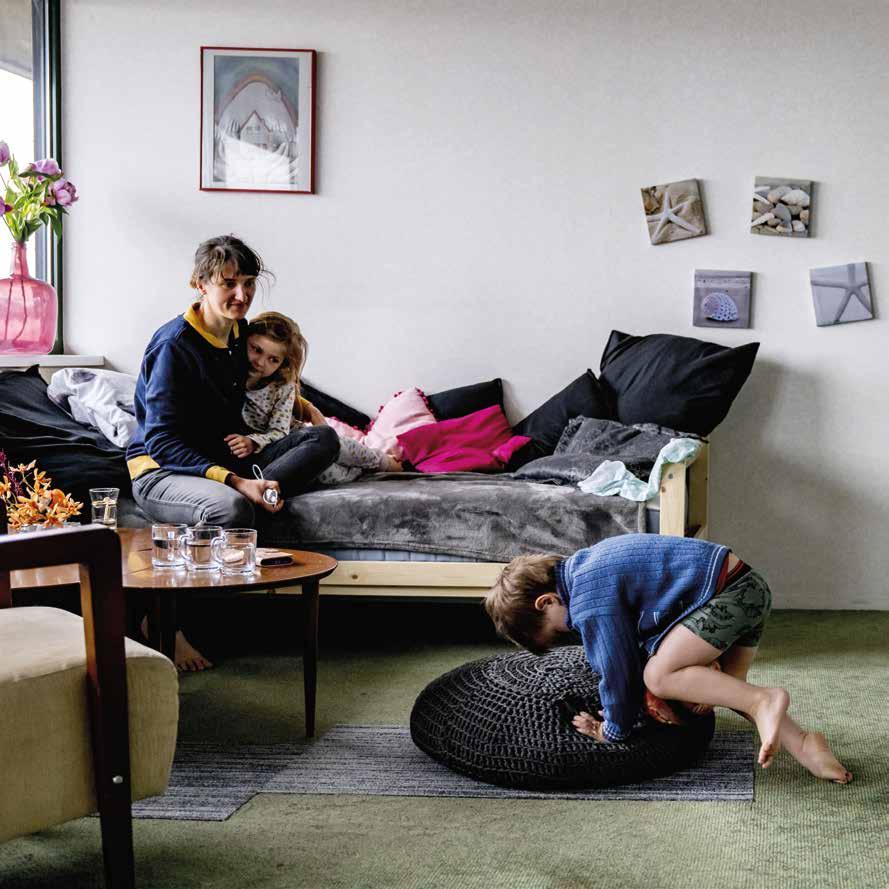
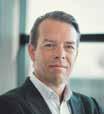
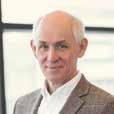
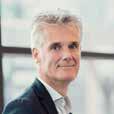


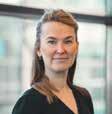
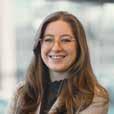
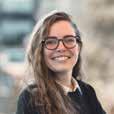
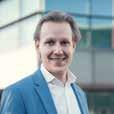
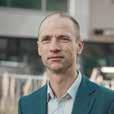
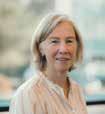
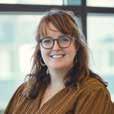
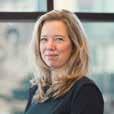
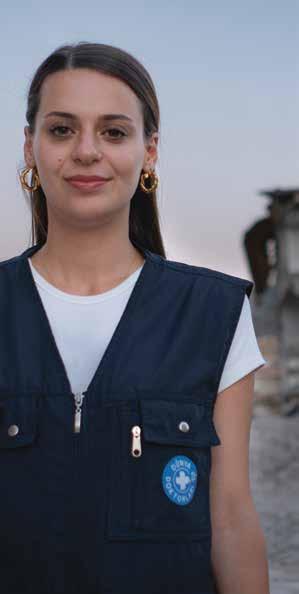
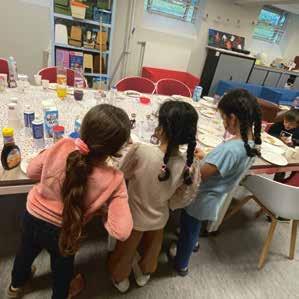
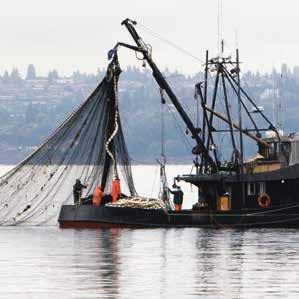
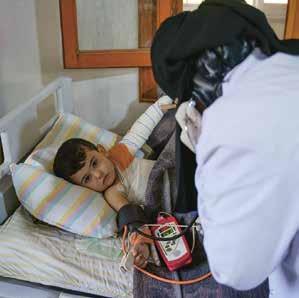
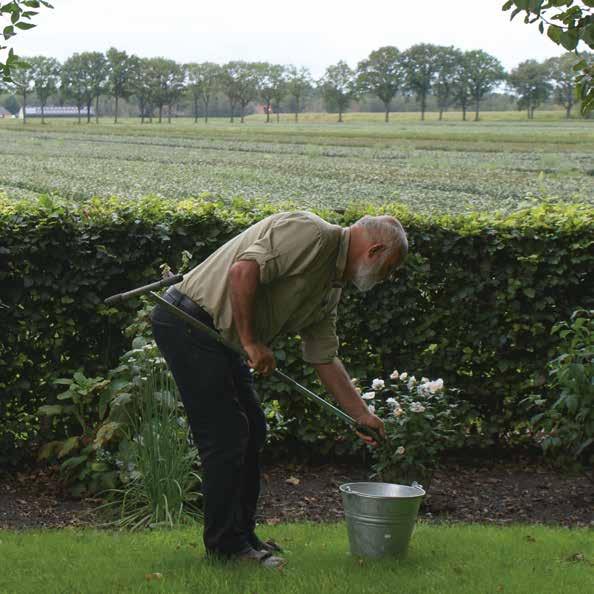
In 2023, Adessium Foundation spent a total of € 16 million in supporting organizations and projects. 2023 also saw the start of 19 new long-term partnerships, and the renewal of 16 existing partnerships. In total, across 101 organizations, there were 106 active partnerships at the end of the year.* 1
Izzy can still remember his first night on the street very well. “I spent it under a bridge, in the Bijlmer area of Amsterdam. ‘Where is life going to take me?’, remember wondering.” Page 42
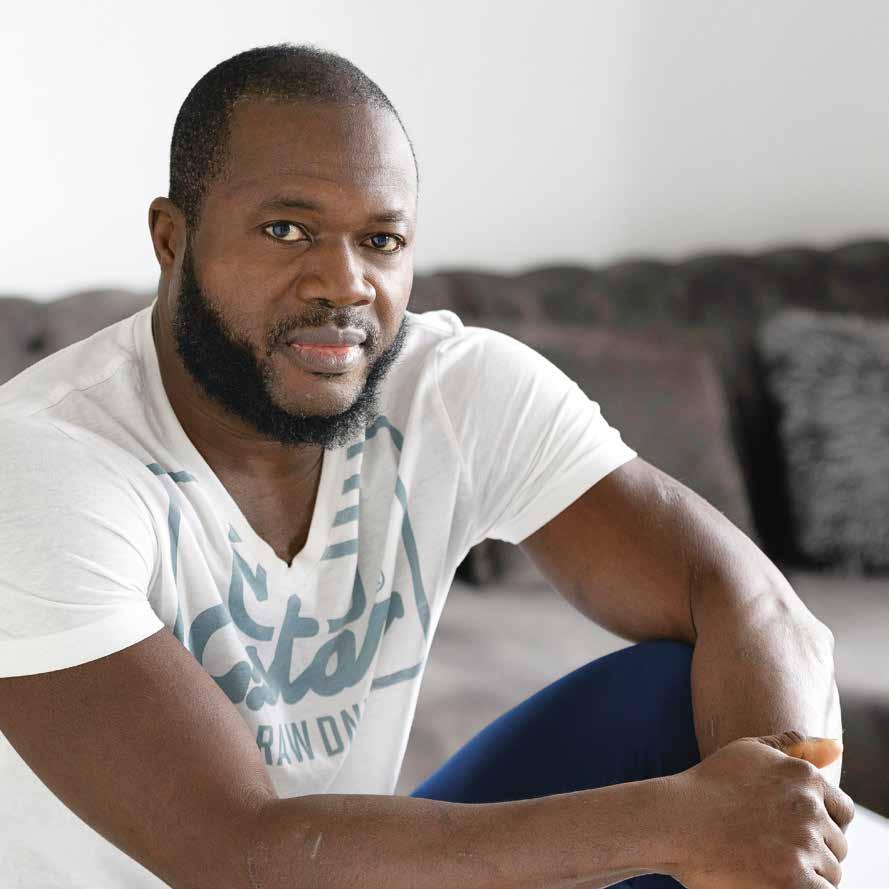
We are immensely proud of the creativity and perseverance our partner organizations employ.
Each and every day they work on the important issues of our time.
Public Interest
• Amnesty International
• Arena for Journalism in Europe
• ARTICLE 19
• Balanced Economy Project
• BEUC (The European Consumer Organisation)
• Bits of Freedom
• Bureau Burgerberaad
• Civitates
• Corporate Europe Observatory (CEO)
• De Balie
• Digital Freedom Fund (DFF)
• Dutch Institute for Vulnerability Disclosure (DIVD)
• European AI & Society Fund
• European Digital Rights (EDRi)
• EUobserver
• European Centre for Press and Media Freedom (ECPMF)
• Forbidden Stories
• Free Press Unlimited
• International Consortium of Investigative Journalists (ICIJ)
• Internews Europe
• Investico
• Investigate Europe
• Journalismfund Europe
• Lab Toekomstige Generaties (LabTG)
• Lighthouse Reports
• Media Defence
• mySociety
• Open State Foundation
• PublicSpaces
• Stichting PILP
• Transparency International
EU office and NL office
• Universiteit Leiden
People
• ARK Rewilding Nederland
• ChemSec (The International Chemical Secretariat)
• CHEM Trust
• ClientEarth
• Environmental Coalition on Standards (ECOS)
• European Environmental Bureau (EEB)
• Enviu
• Food Packaging Forum
• Friends of the Earth Europe
• Global Fishing Watch (GFW)
• Health and Environment Alliance (HEAL)
• Marilles Foundation
• Mediterranean Recovery Action (MedReAct)
• Natuur & Milieu
• Natuur en Milieufederatie Noord-Holland
• Plastic Soup Foundation
• Recycling Netwerk Benelux
• Rockefeller Philanthropy Advisors
• Seas At Risk (SAR)
• Stichting De 12 Reeuwijkse Plassen
• Stichting Tegengif
• Transitiecoalitie Voedsel
• Vereniging Milieudefensie
• Zero Waste Europe (ZWE)
Social Initiatives
• ASKV/Steunpunt Vluchtelingen
• Collectief Kapitaal
• Critical Mass
• De Regenboog Groep
• Defence for Children
• Doctors of the World
• European Council on Refugees and Exiles (ECRE)
• European Programme for Integration and Migration (EPIM)
• Fonds Bijzondere Noden Rotterdam (FBNR)
• House of Hope
• IMC Weekendschool
• Justice & Peace Netherlands
• Kansfonds
• Leger des Heils
• Landelijk Ongedocumenteerden Steunpunt (LOS)
• Movement On The Ground
• Nederlands Debatinstituut (NDI)
• New Dutch Connections (NDC)
• Nationale Jeugdraad (NJR)
• Orchestre Partout
• Pauluskerk Rotterdam
• Platform for International Cooperation on Undocumented Migrants (PICUM)
• Protestantse Diaconie Amsterdam
• Quiet Nederland
• Rotterdams Ongedocumenteerden Steunpunt (ROS)
• SchuldHulpMaatje
• Stek - stichting voor stad en kerk
• Stem in de Stad
• Sterk Huis
• Stichting de Vrolijkheid
• Stichting Energiebank Nederland
• Stichting Move
• Stichting ONSbank
• Stichting Urgente Noden Nederland (SUN)
• Stichting Zwerfjongeren Nederland (SZN)
• Vereniging Samenwerkende Gezondheidsfondsen (SGF)
• Villa Pinedo
• Young Impact
Flexible
Funding
• Doctors Without Borders
• Cancer Center Amsterdam
• Choose Love
• Prinses Máxima Centrum
• Stichting TAAI
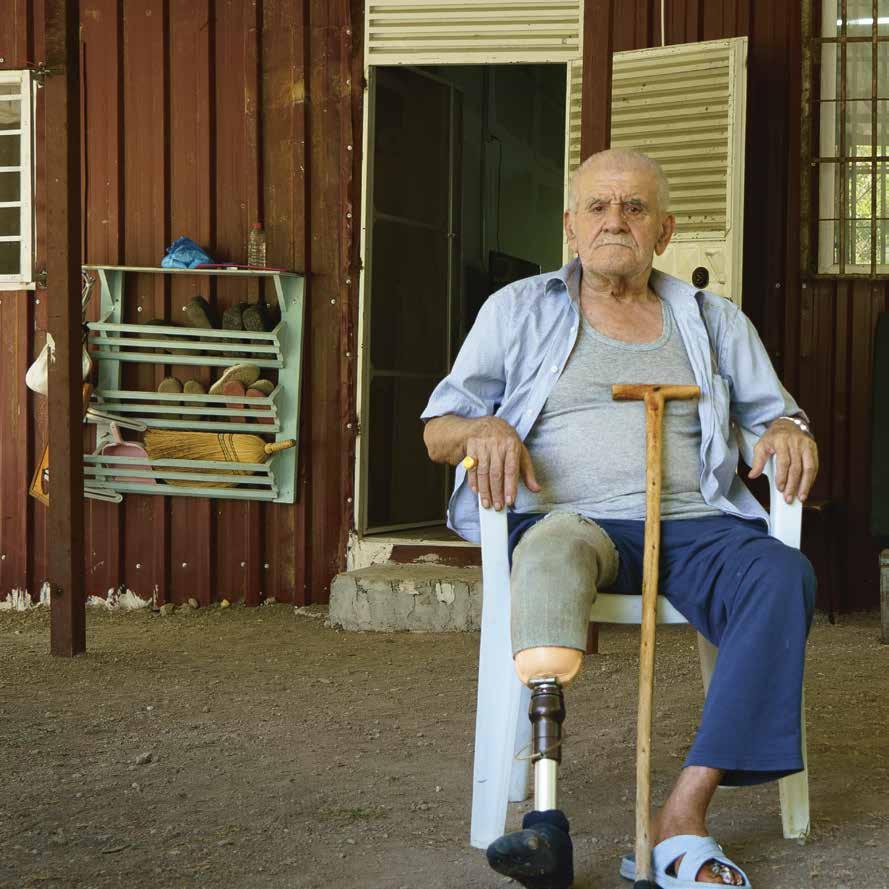
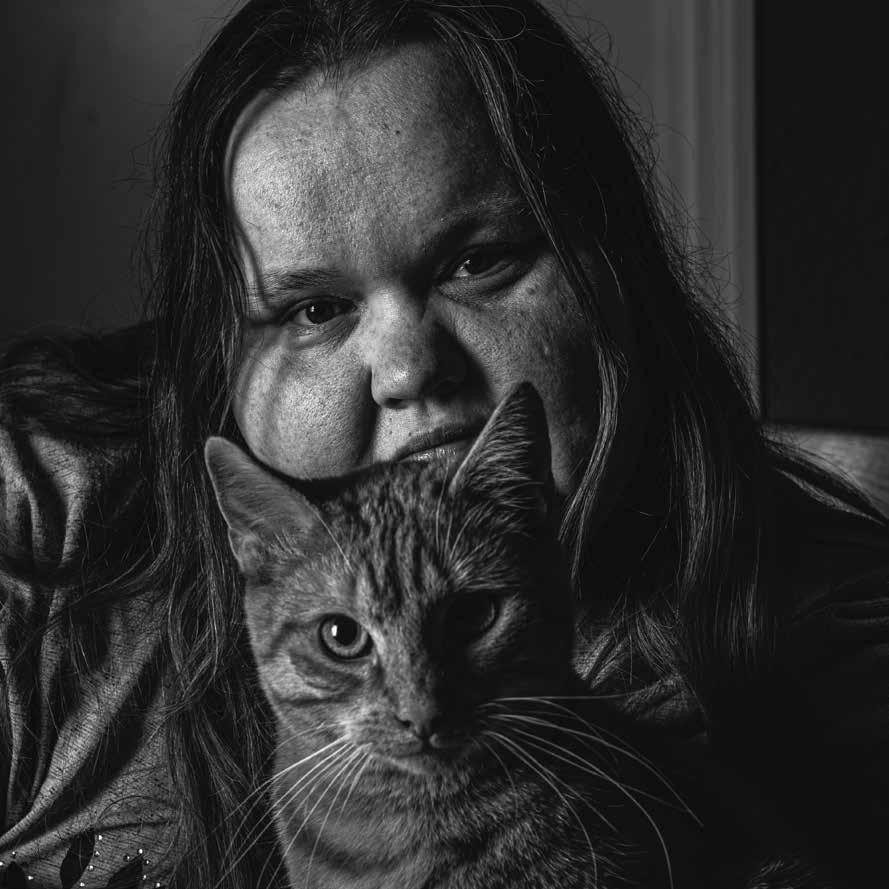 Ali (82) lives in a small Turkish village in Hatay, one of the areas badly hit by the earthquakes. He receives medication from Doctors of the World and the nurses visit him every day. Page 51
Ali (82) lives in a small Turkish village in Hatay, one of the areas badly hit by the earthquakes. He receives medication from Doctors of the World and the nurses visit him every day. Page 51

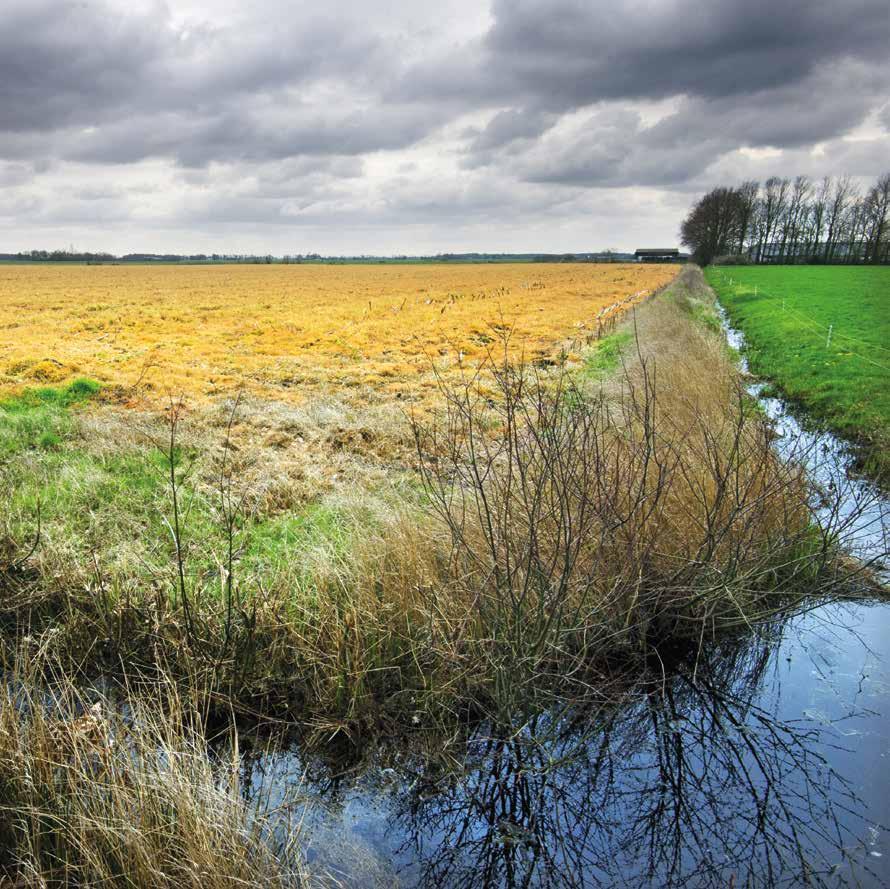
Civil society organizations represent an essential force that can guide us through this betwixtand-between timeJournalist George van Hal of the Volkskrant newspaper tests whether a coat without PFAS can also keep water out properly. His conclusion: the PFAS-free raincoat is a success. Page 31 A field sprayed with glyphosate turns yellow. Glyphosate stops the production of certain enzymes in plants, causing them to die. Page
Content Adessium Foundation
Design deWereldvanIM.nl
Translations Elizabeth van Ulft Language Services
Printer Puntgaaf drukwerk
Credits photography
4: Paco Fernández Masero. 5: Goedele Monnens. 7: Dirk Hol. 8: Peter van Beek. 10: Vincente Planells Ramon. 10: child with violin, Ananda Reijnen. 10: man on mattress: Mona van den Berg. 12: Ivar Pel. 15: mother and child, Arie Kievit. 18: blackened sentences, Laurens van Putten. 18: Belastingdienst, Peter Hilz. 18: memorial, Rene' Rossignaud. 23: Goedele Monnens. 24: Ramon van Flymen. 26: Monasse Thierry. 28: protest glyphosate, Laurens van Putten. 30: Anton Kappers. 33: ANP. 36: Pedro Riera Llompart. 38: poem, Anne Sophie Oudman. 38: woman in bed, Peter van Beek. 38: laboratory, Martien Schouten. 38: man with boxes, Mona van den Berg. 40: Mona van den Berg. 43: Goedele Monnens. 46: Camiel Zwart. 48: camp in Syria, Omar Haj Kadour. 48: woman with child, Tom Casey. 54: man with cigarette, Peter van Beek. 54: man with hat, Peter van Beek. 56: Robin Utrecht. 58: child in bed, Abdulrahman Sadeq. 60: Goedele Monnens. 63: Peter van Beek. 64: Pauline Niks. 65: Marcel van Kammen
Contact
Stichting Adessium / Adessium Foundation
PO Box 76 • 2810 AB Reeuwijk • The Netherlands +31 182 646100 • info@adessium.org • www.adessium.org Chamber of Commerce no. 24.38.02.61
Date of publication May 2024
Content © Adessium Foundation 2024. All rights reserved.
Disclaimer This Annual Report provides information about Adessium Foundation’s activities. Adessium Foundation cannot guarantee that the information provided is entirely accurate, complete, and current. Adessium Foundation accepts no liability whatsoever for damages of any kind that may result from the use of or reliance on the information provided. No rights may be derived from the information provided. The content and design of this annual report are subject to intellectual property rights belonging to Adessium Foundation and third parties. Prior written permission from Adessium Foundation is required to reproduce, copy, change, or publish all or part of this annual report electronically or by any other means.
